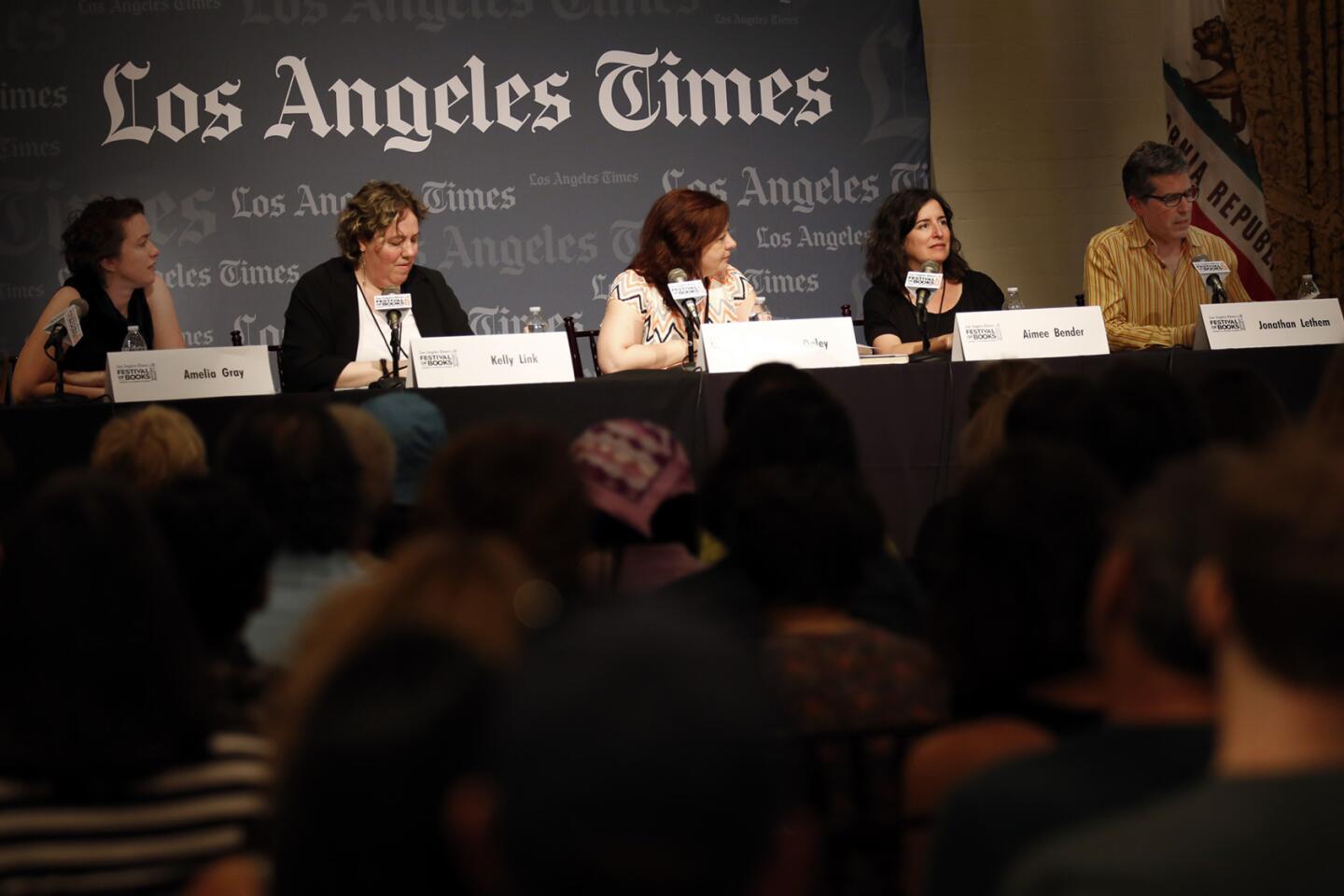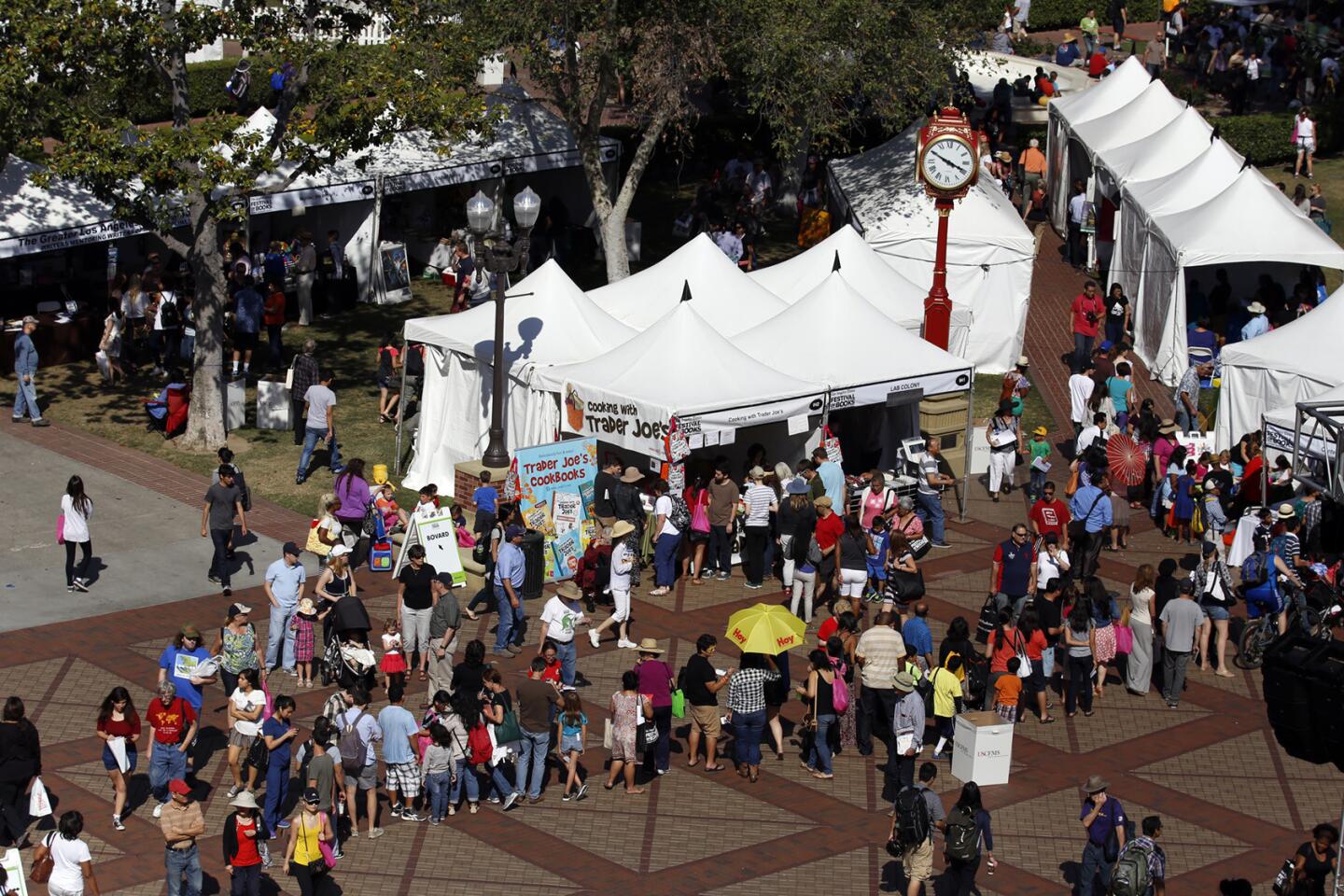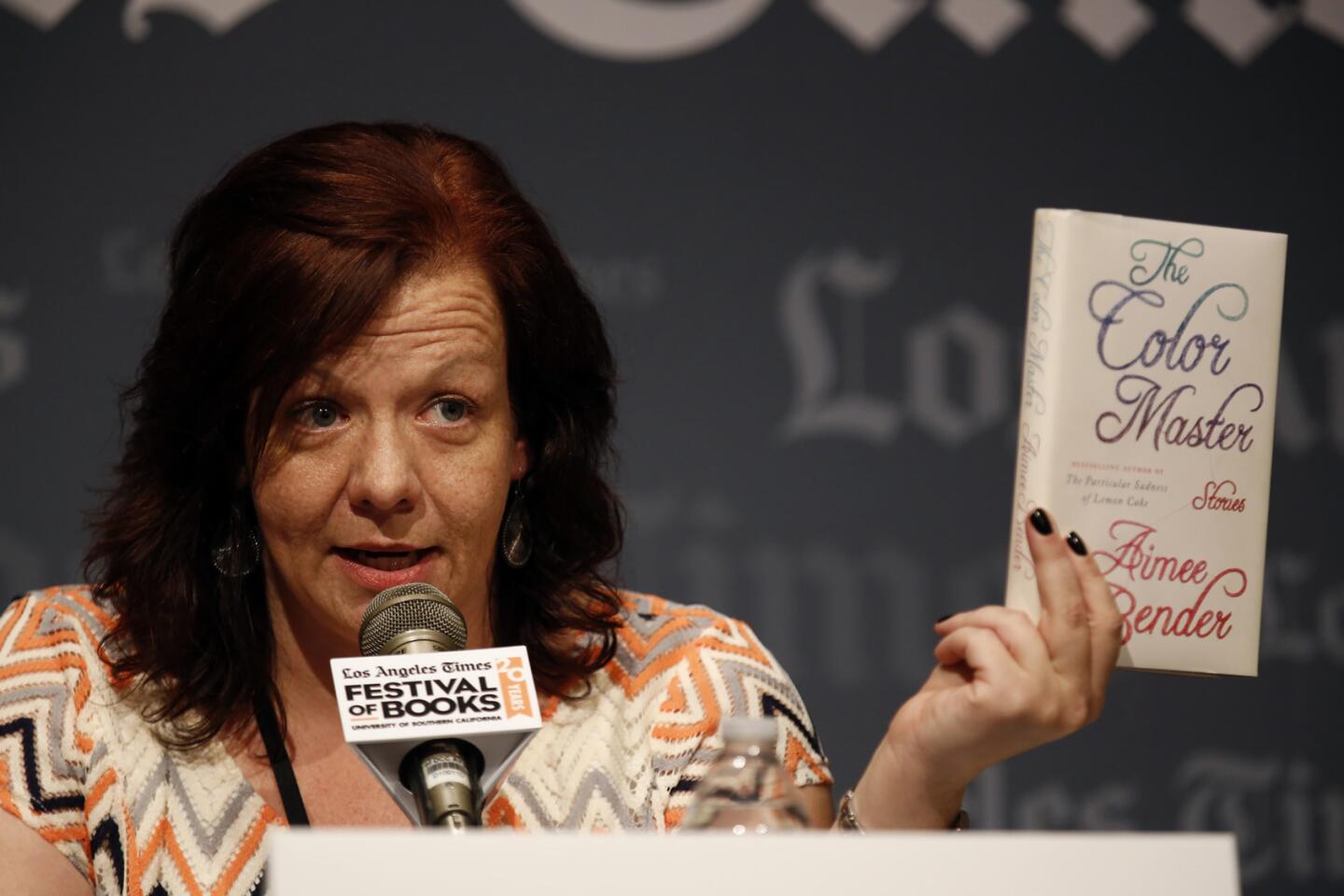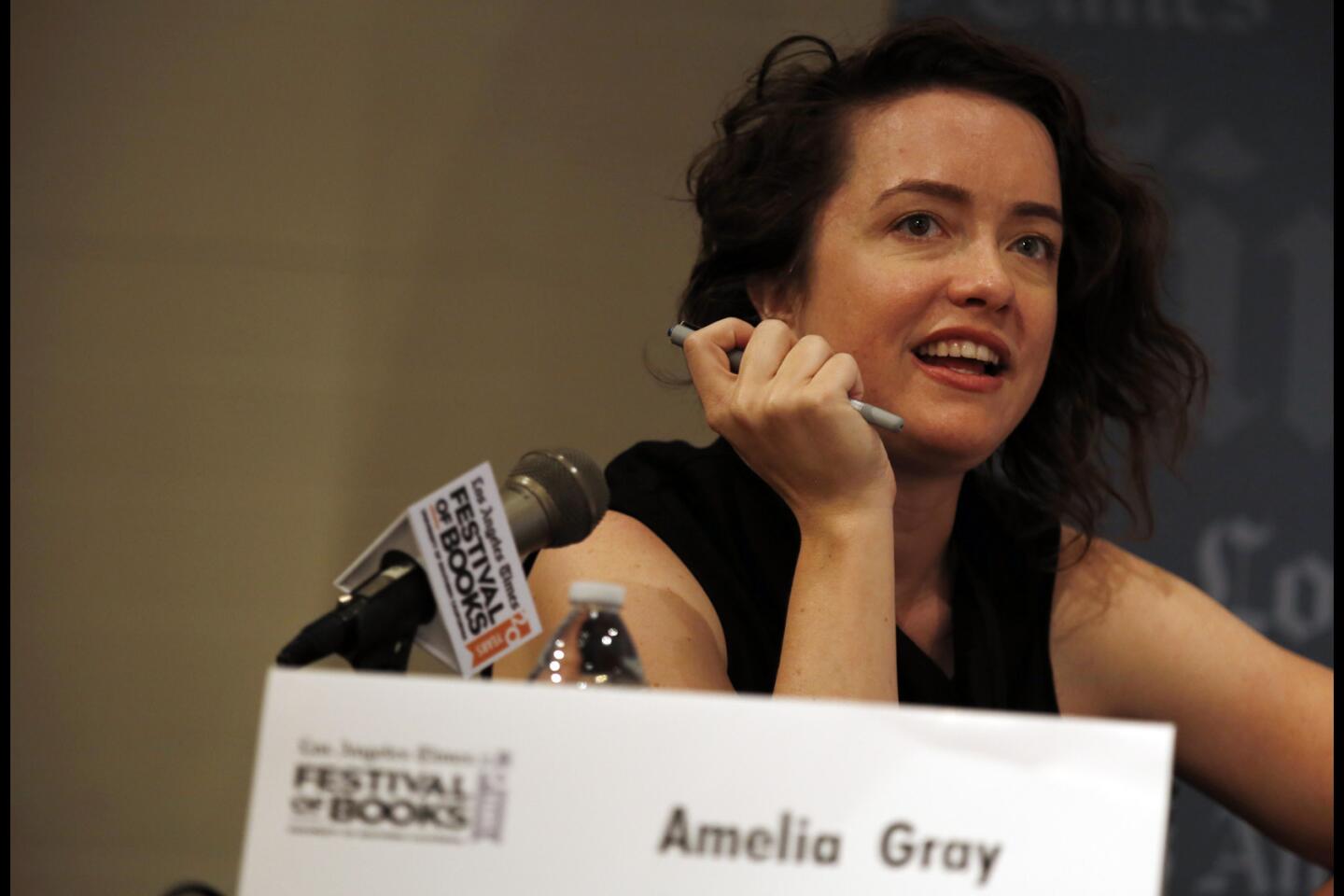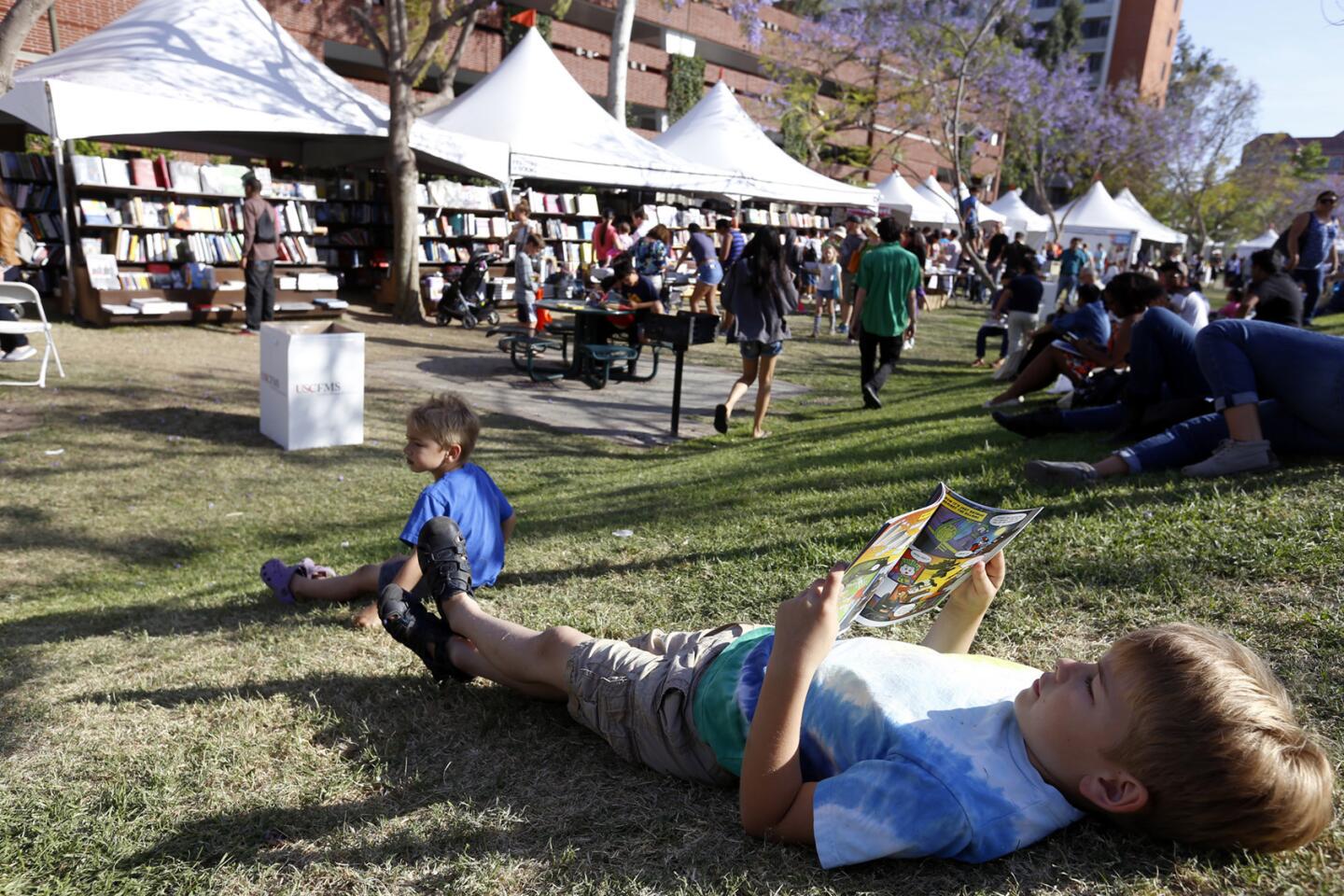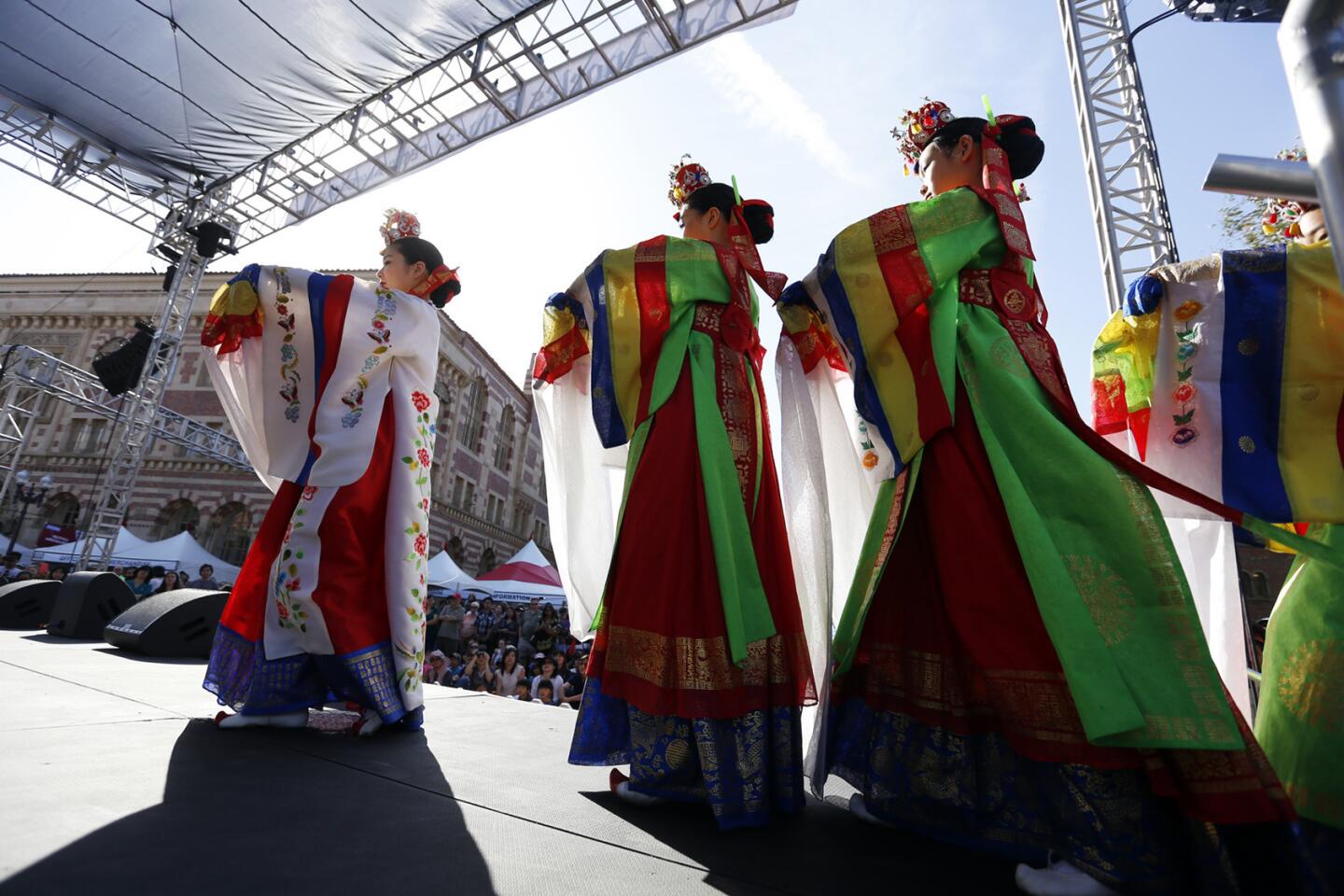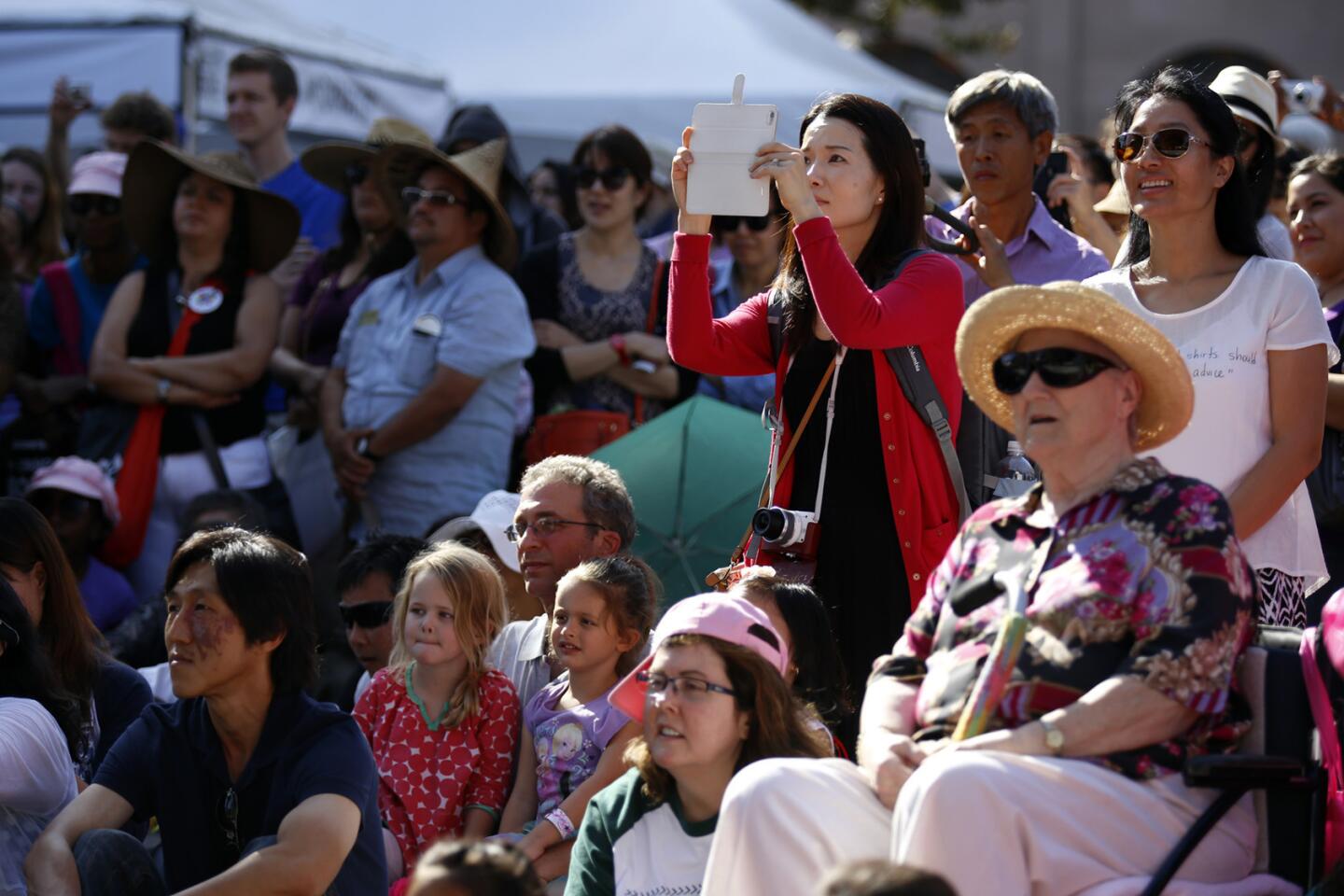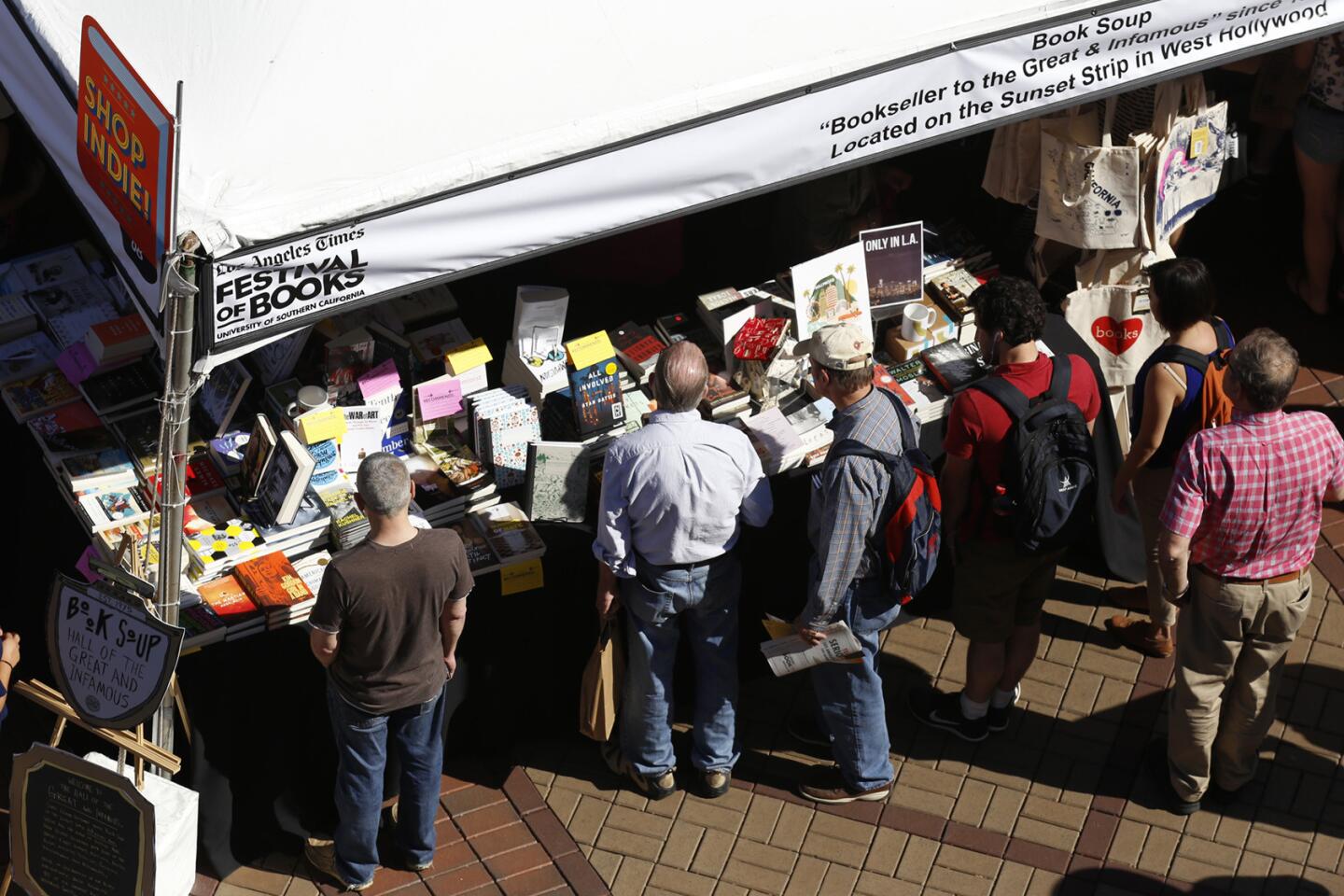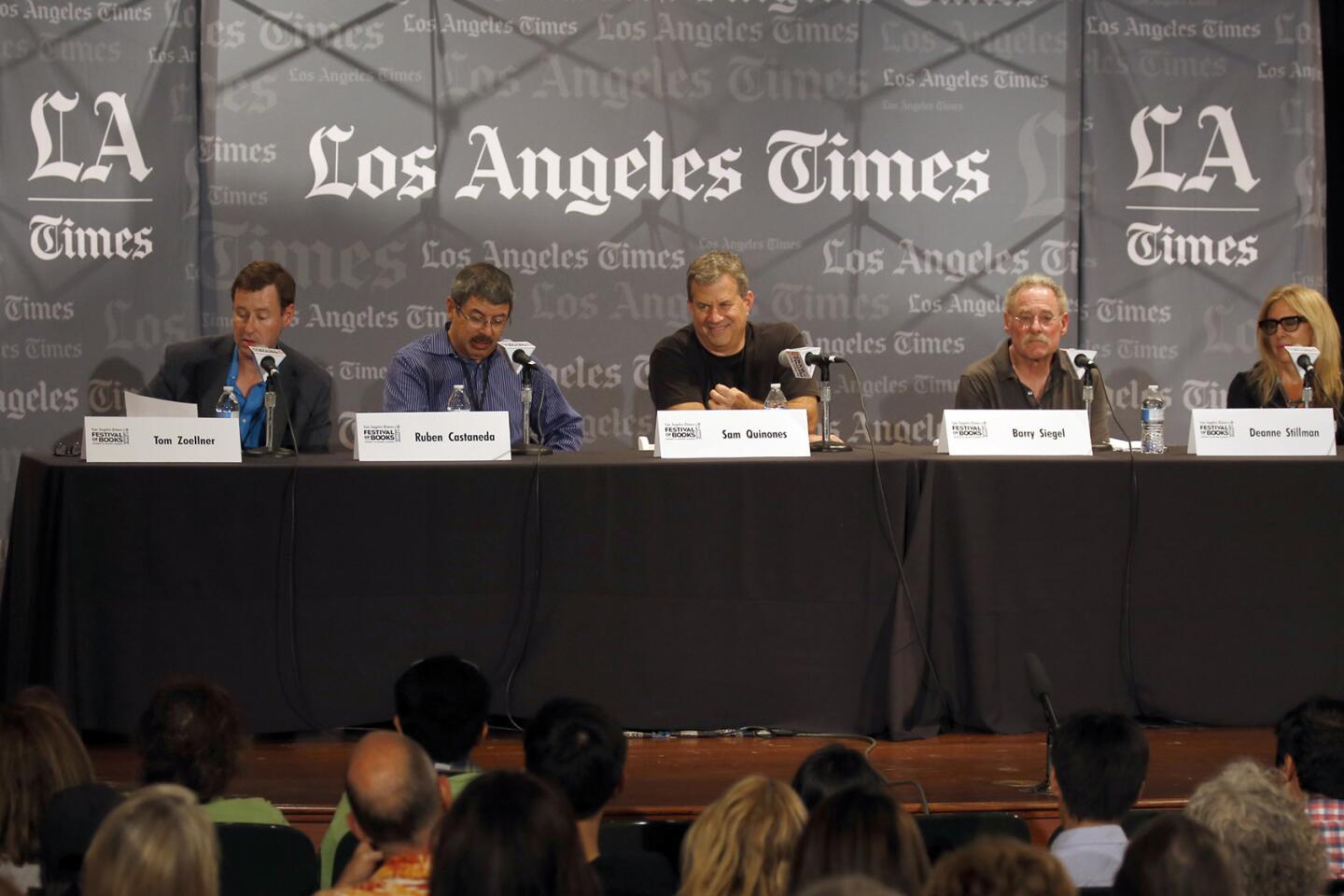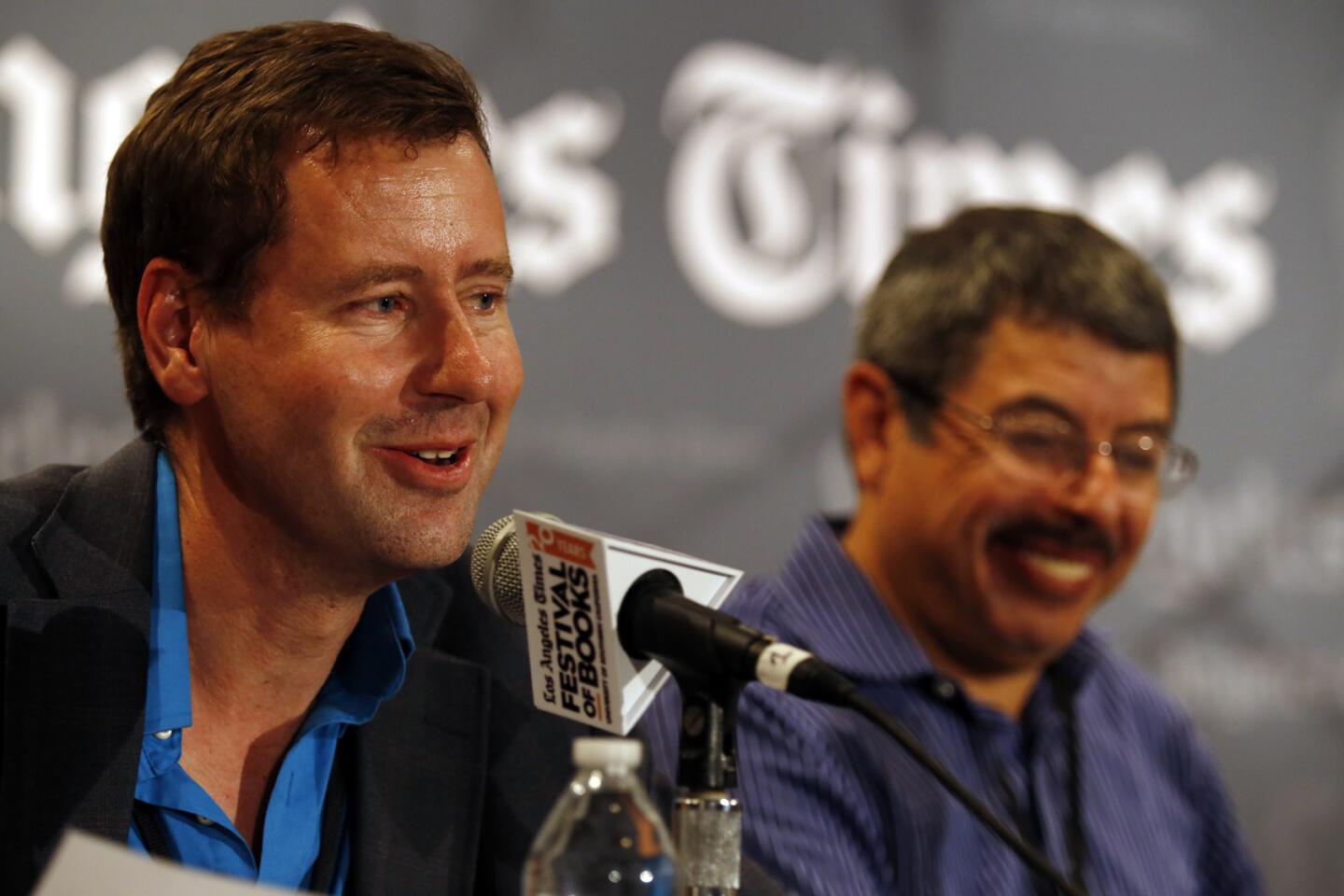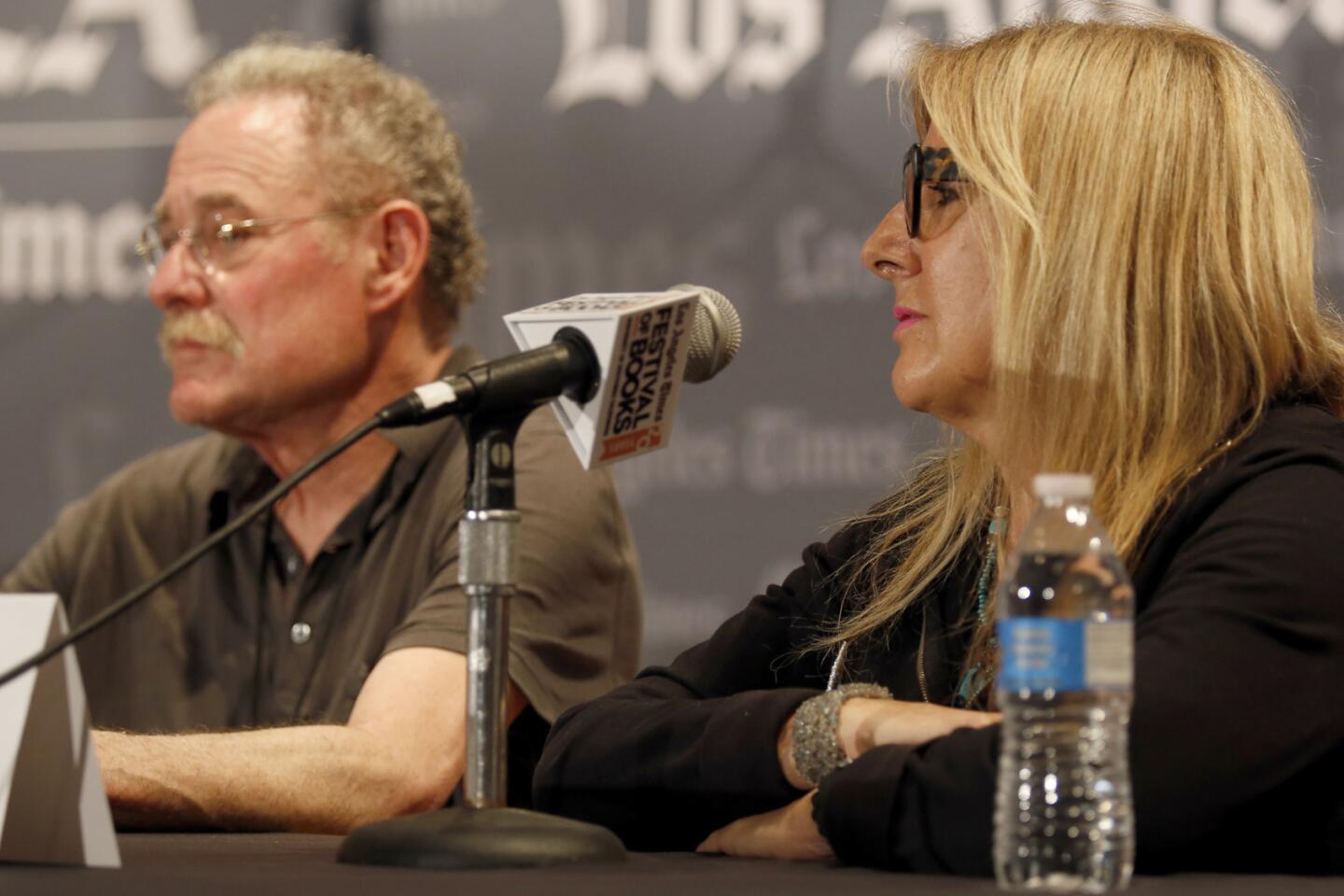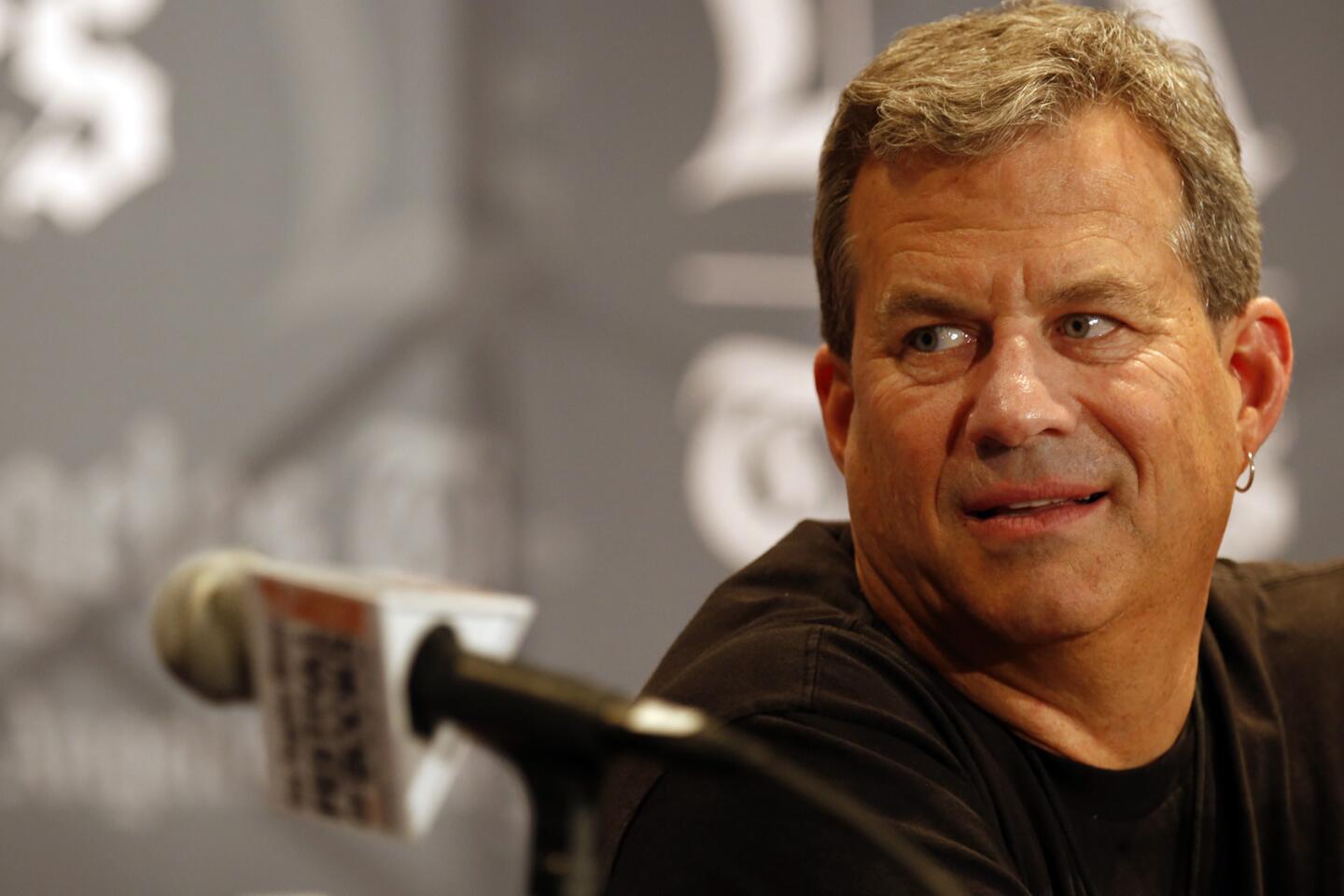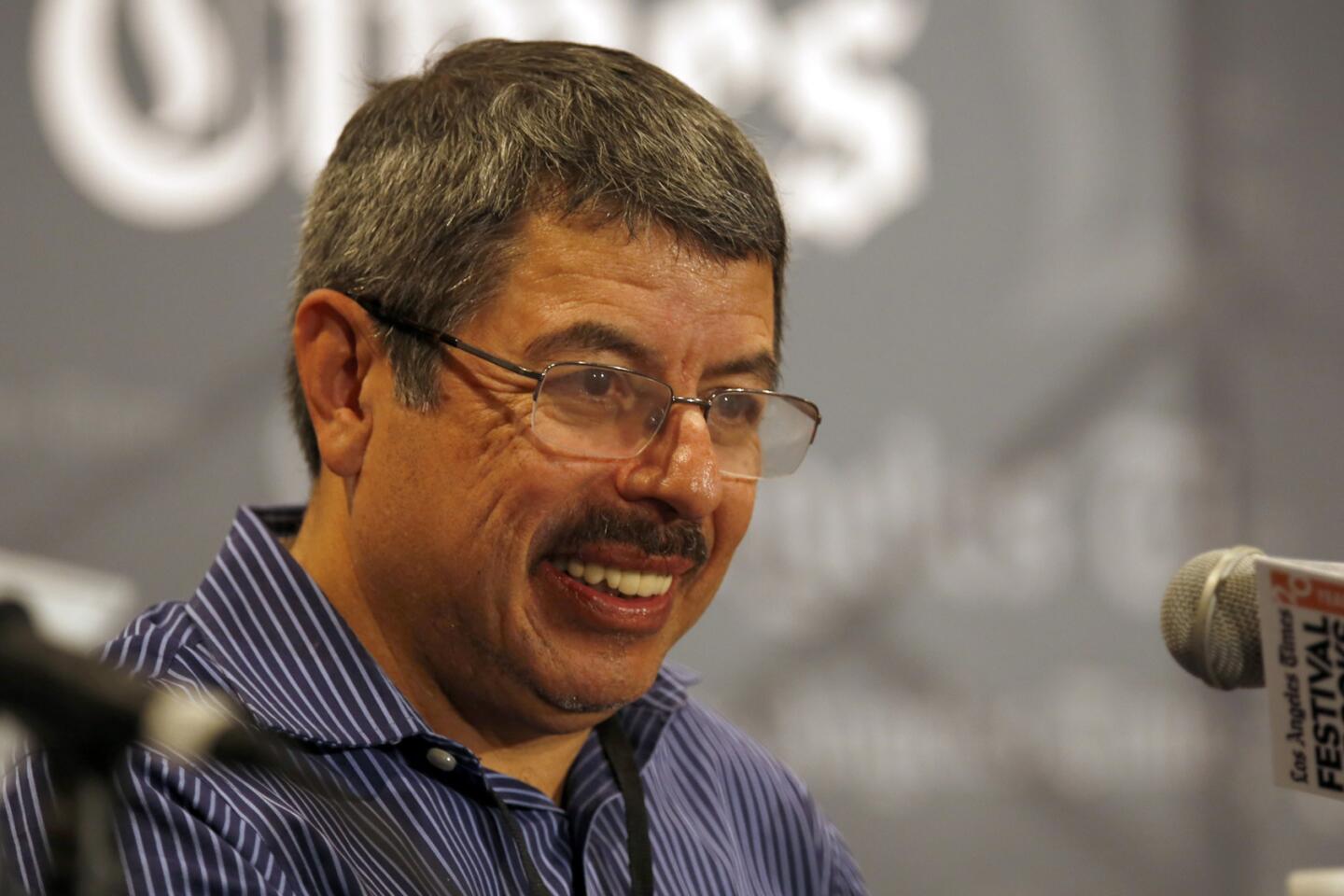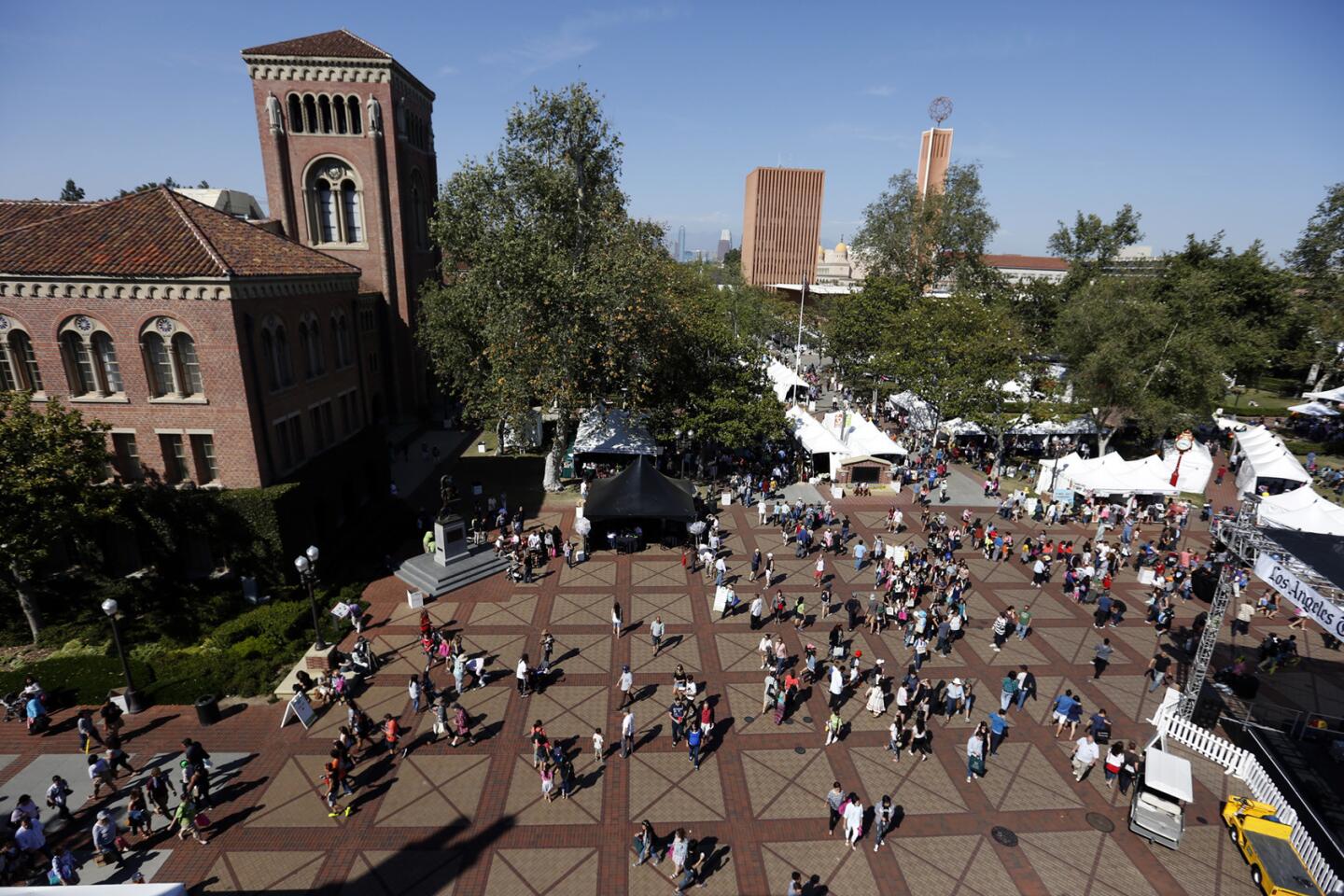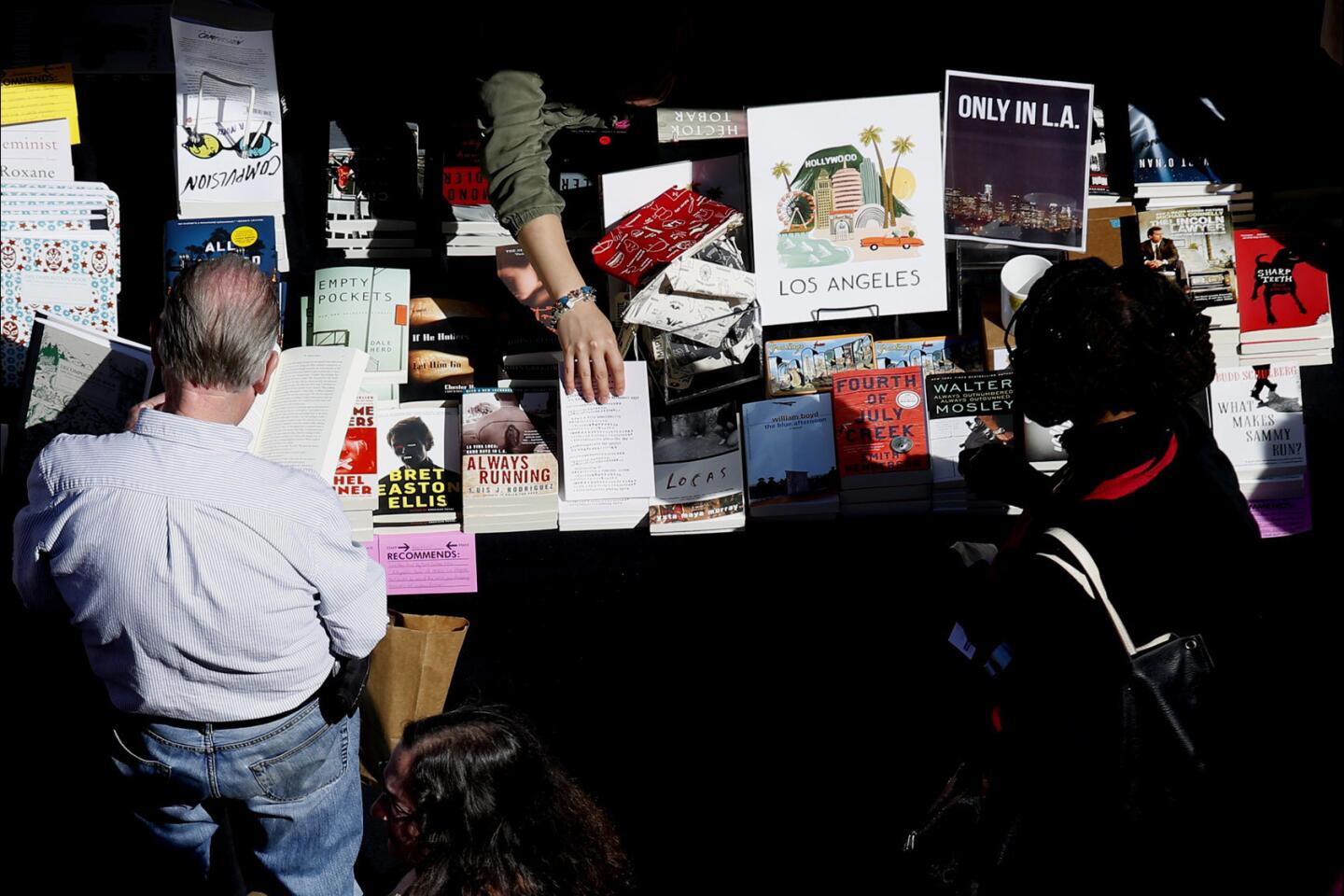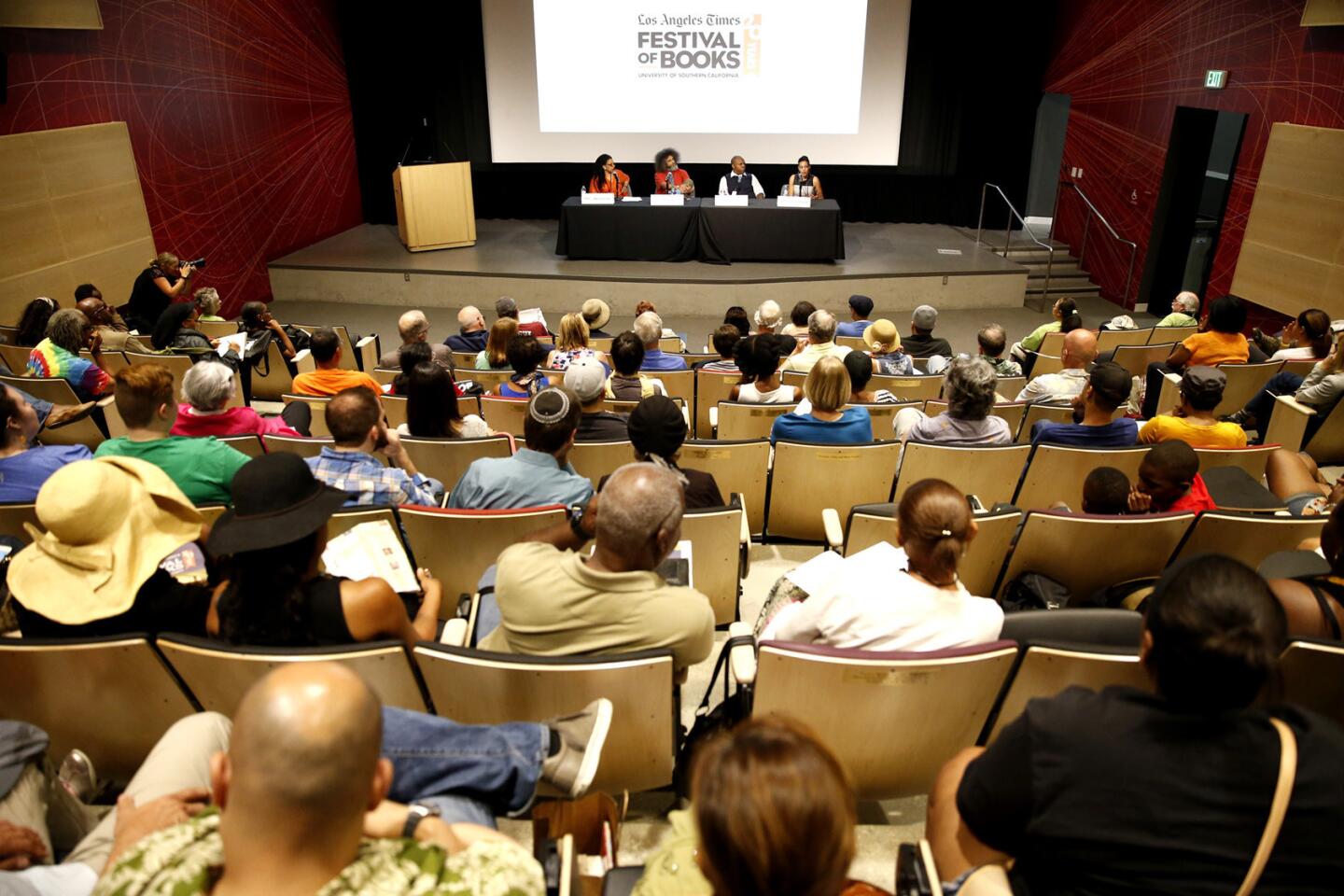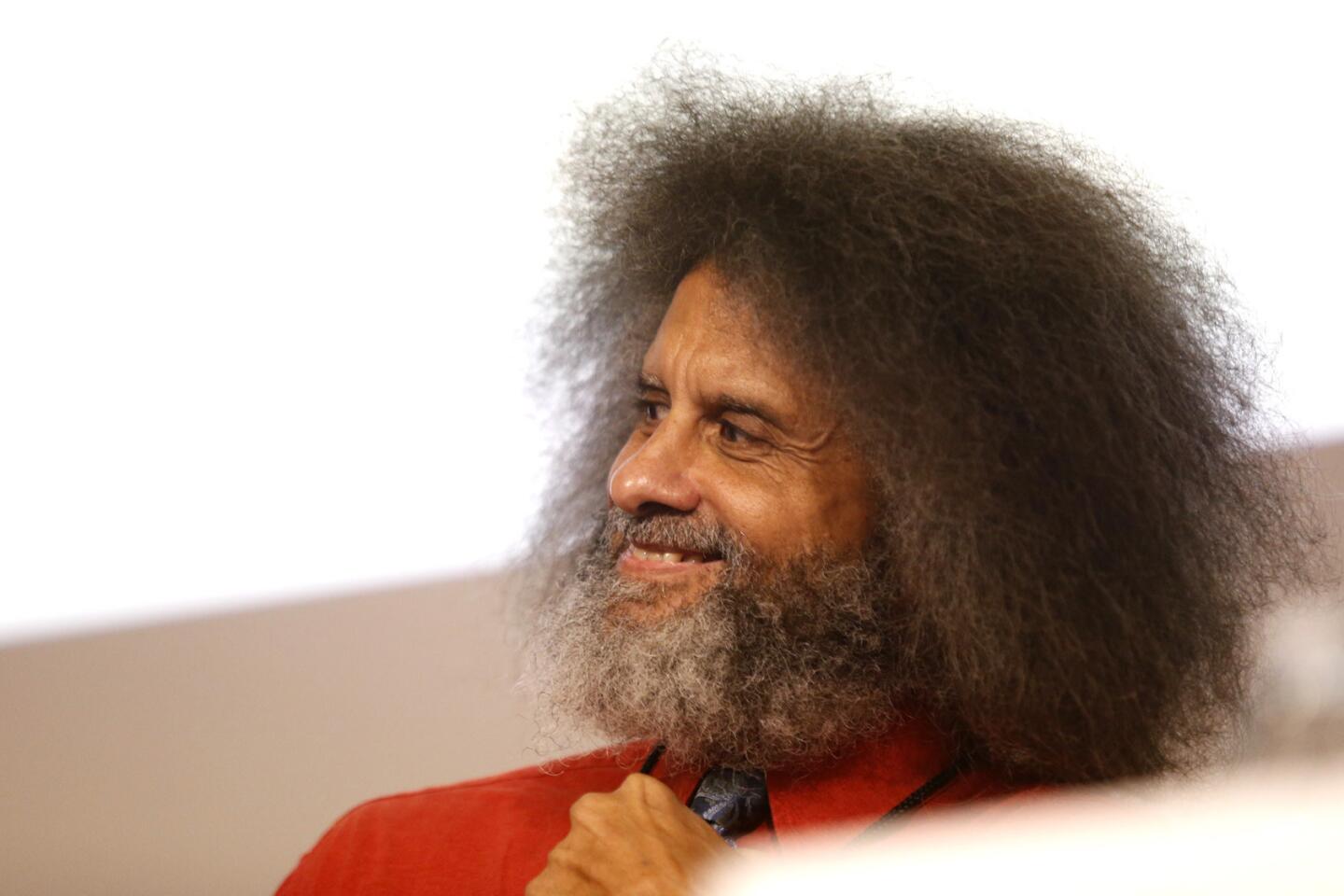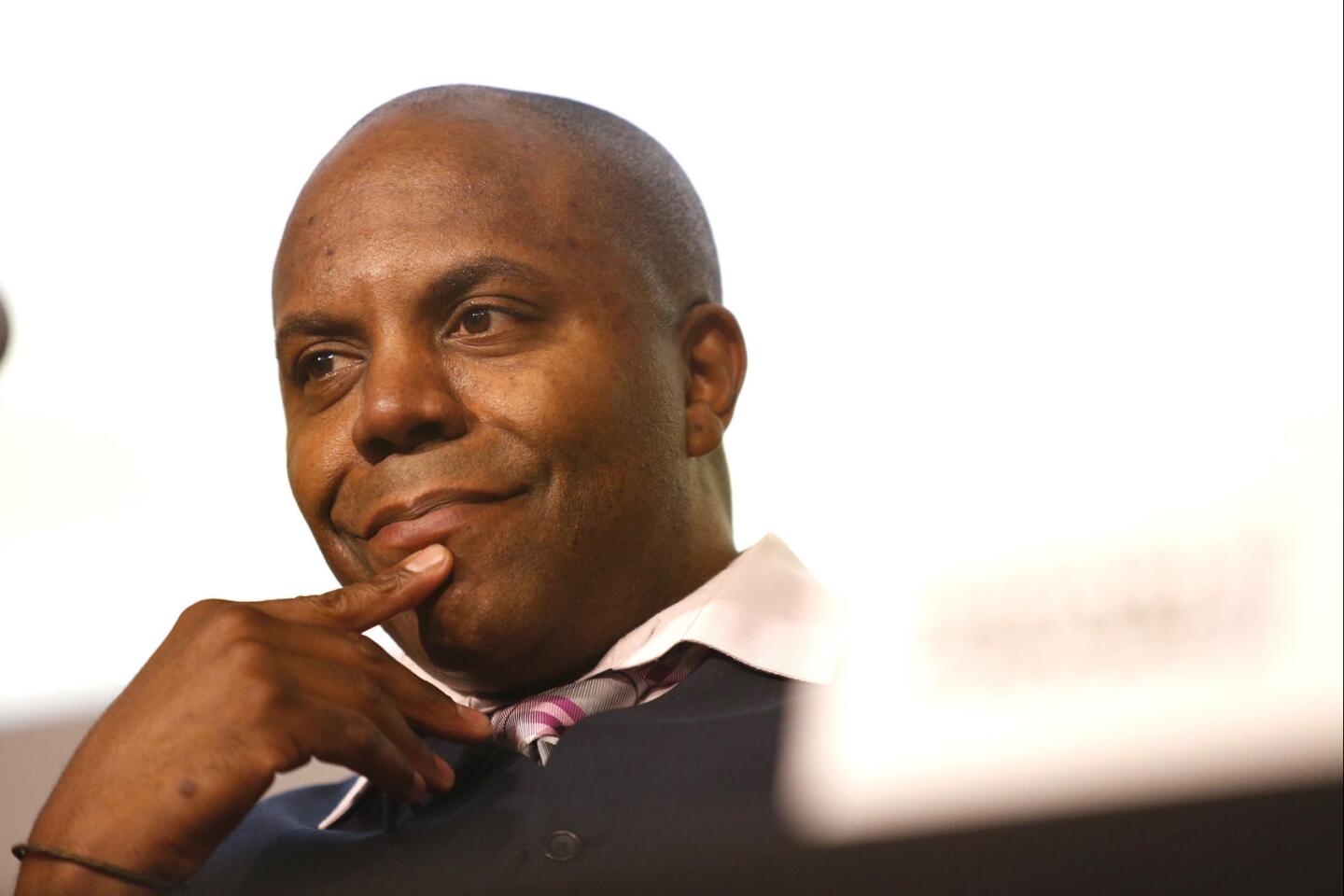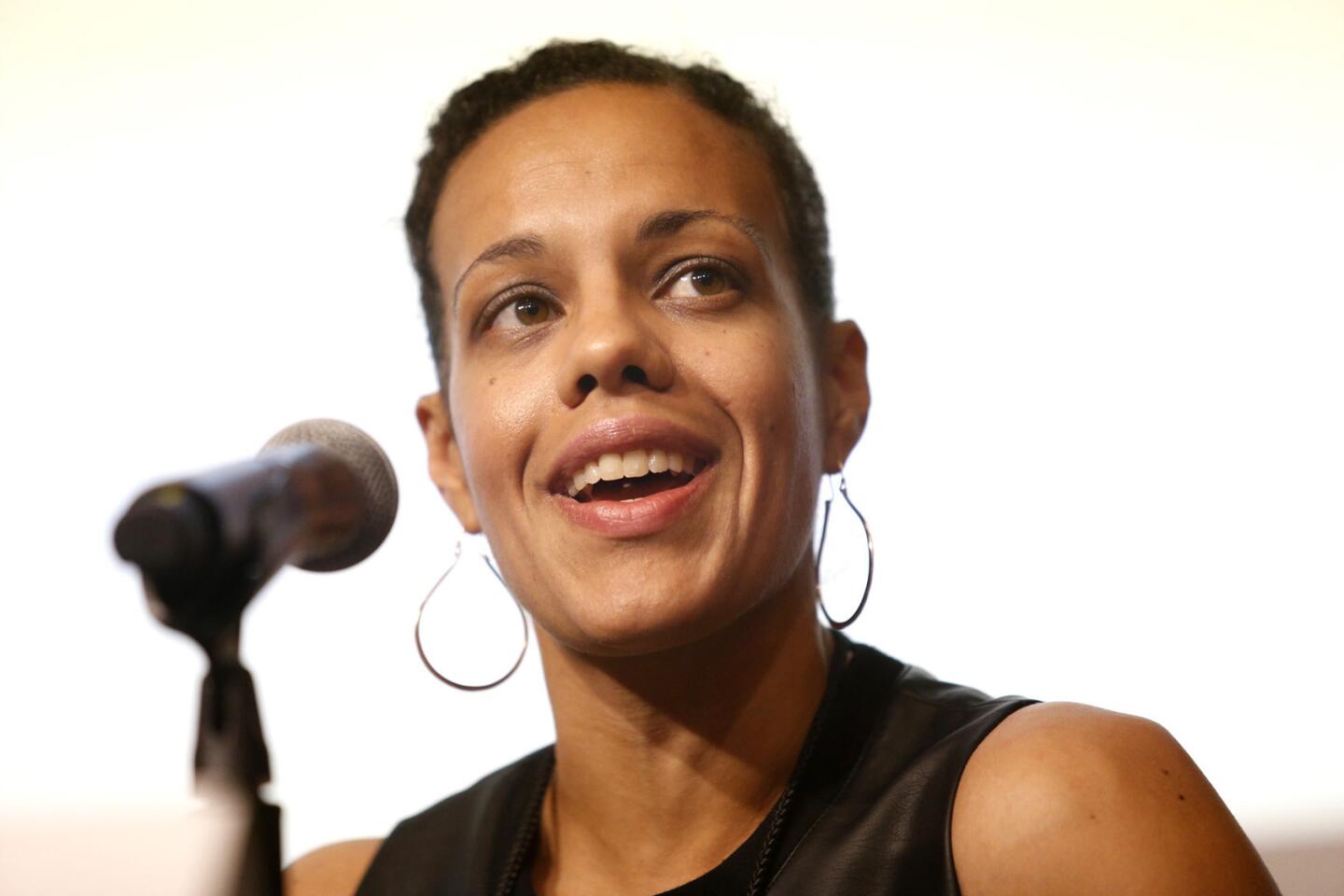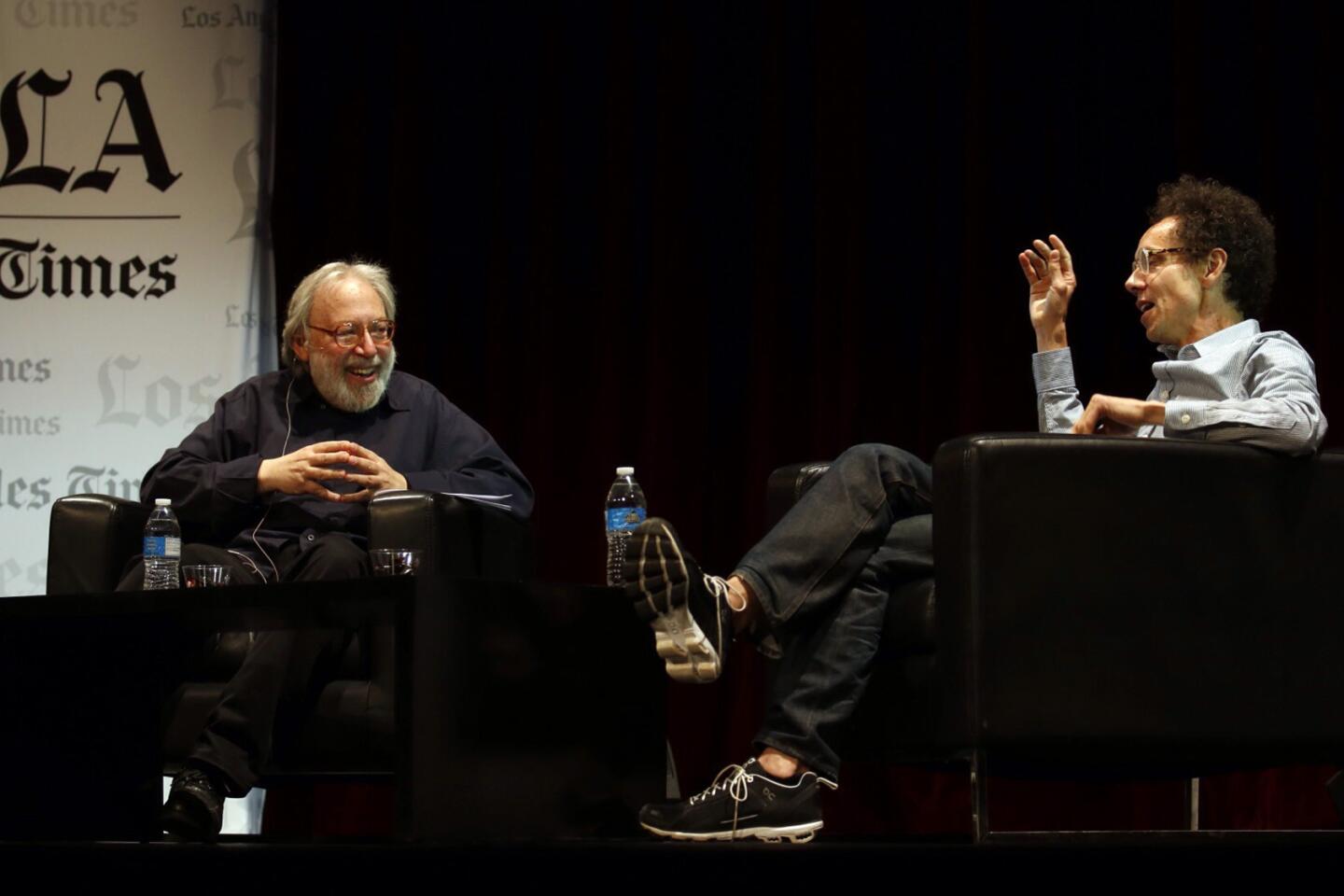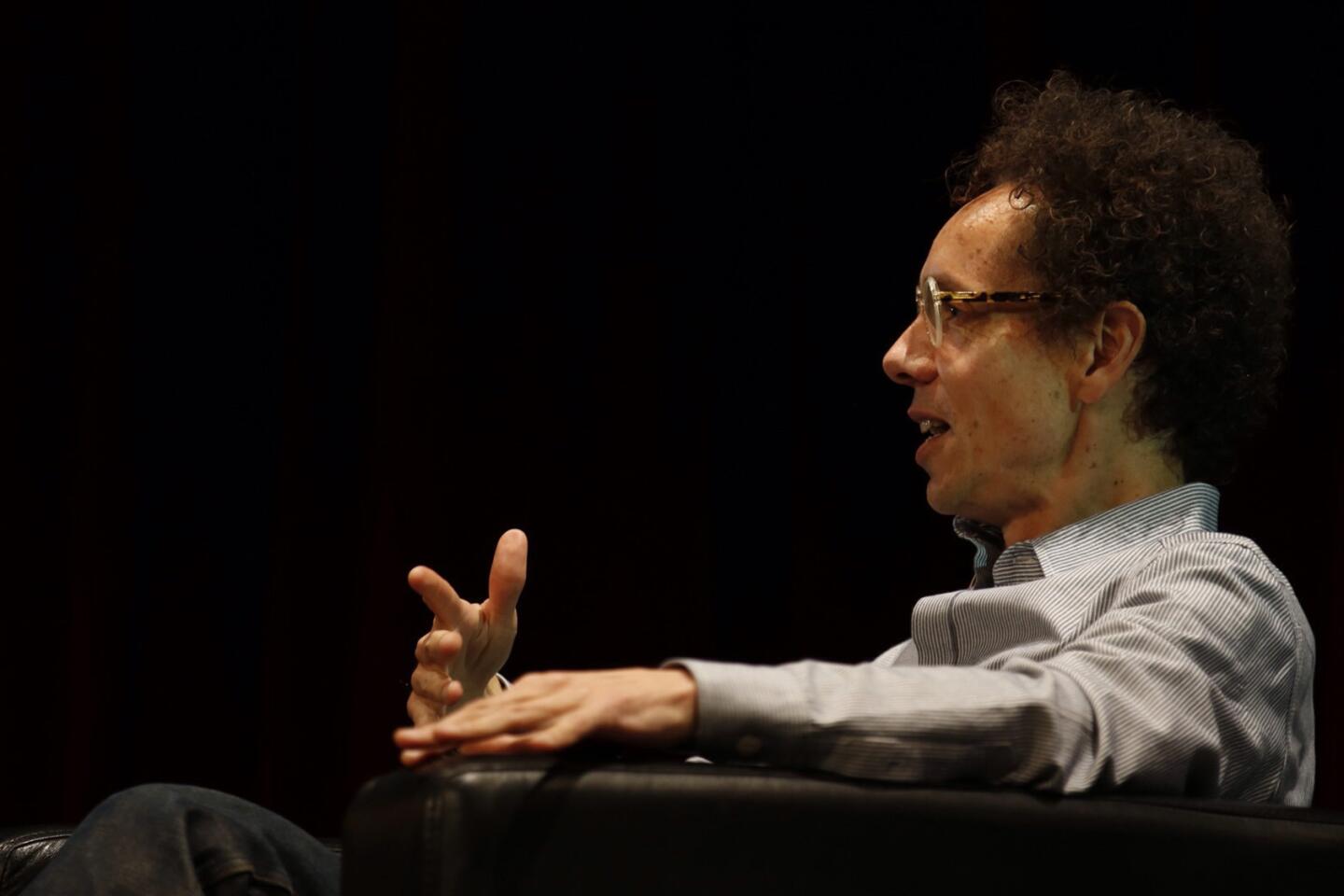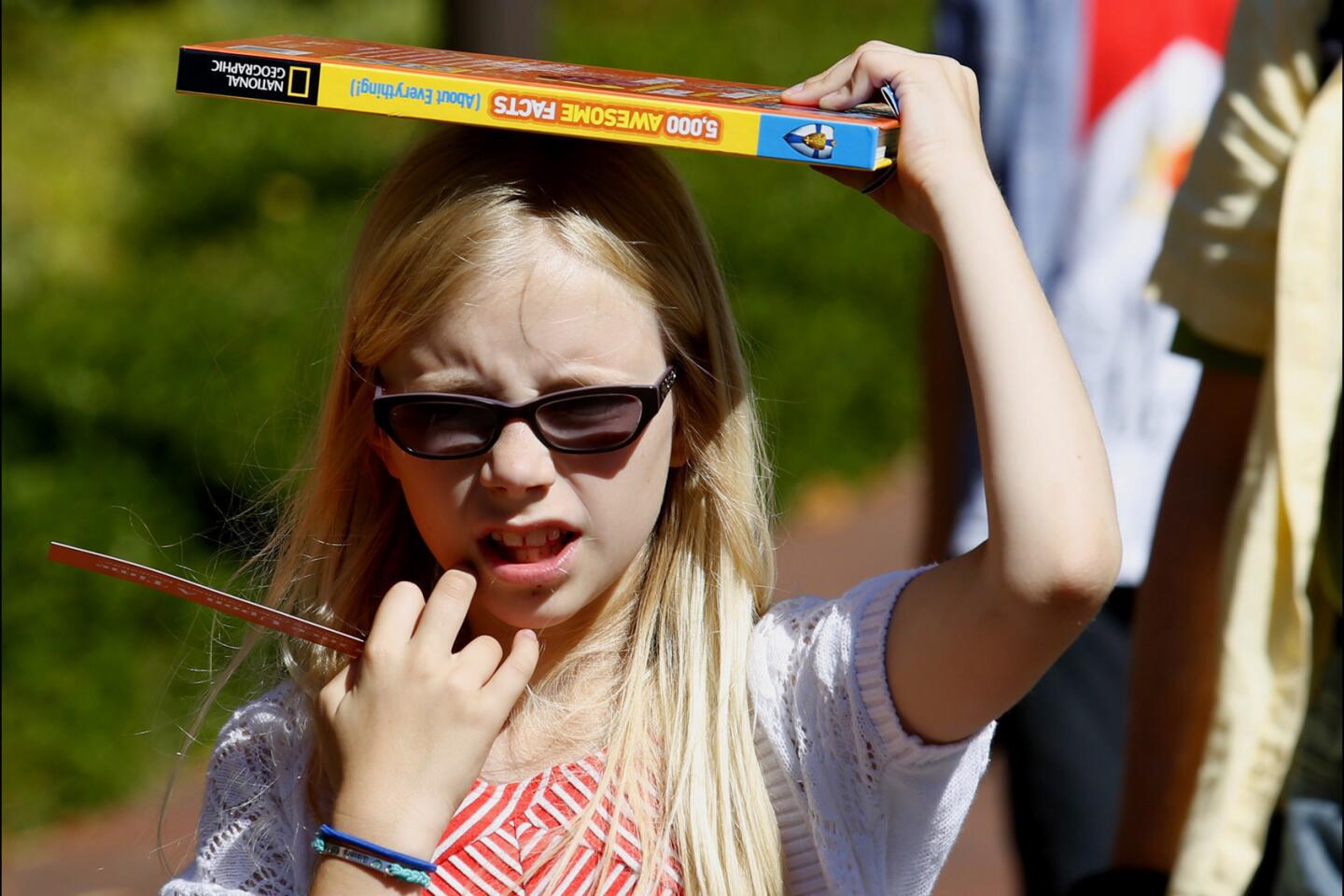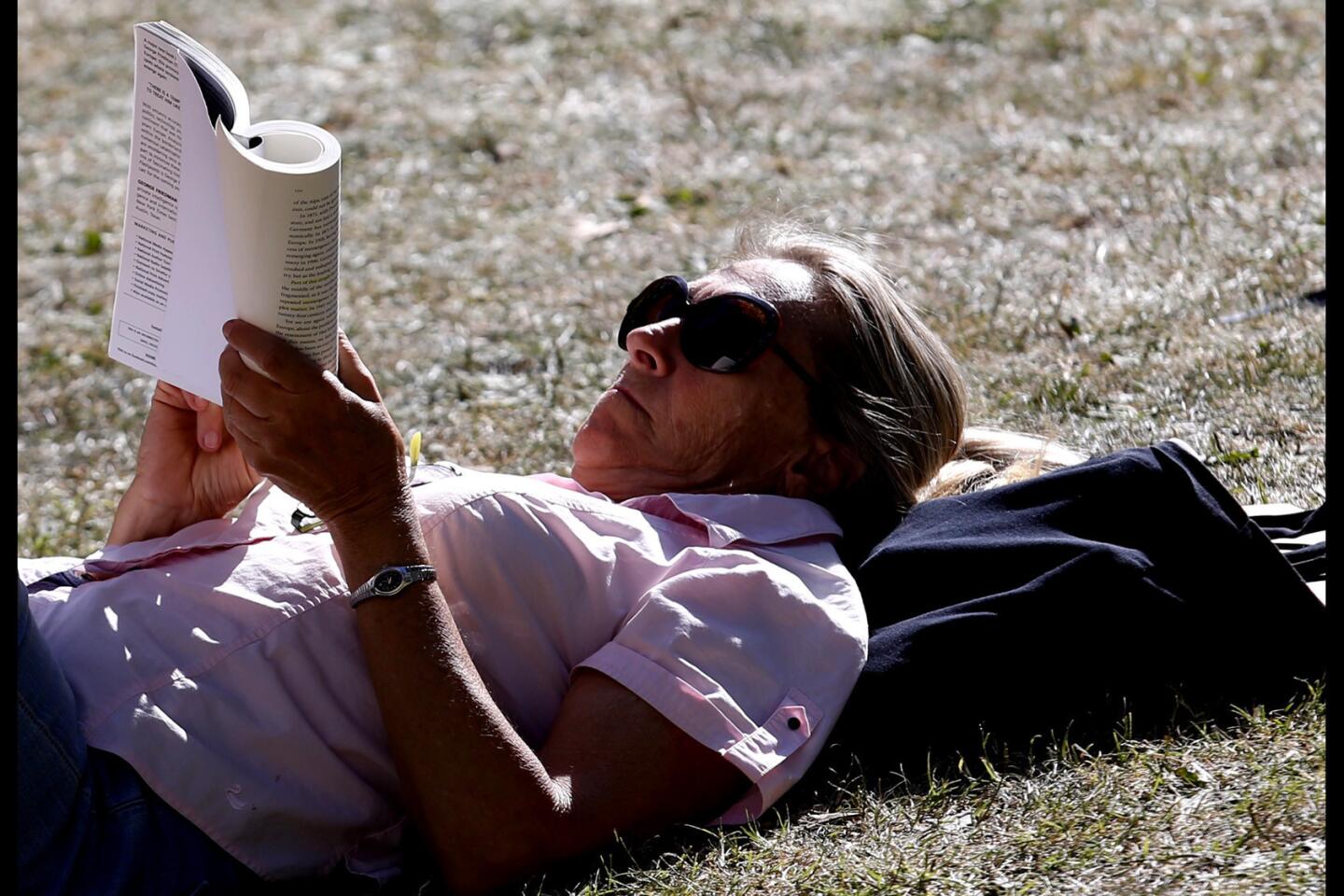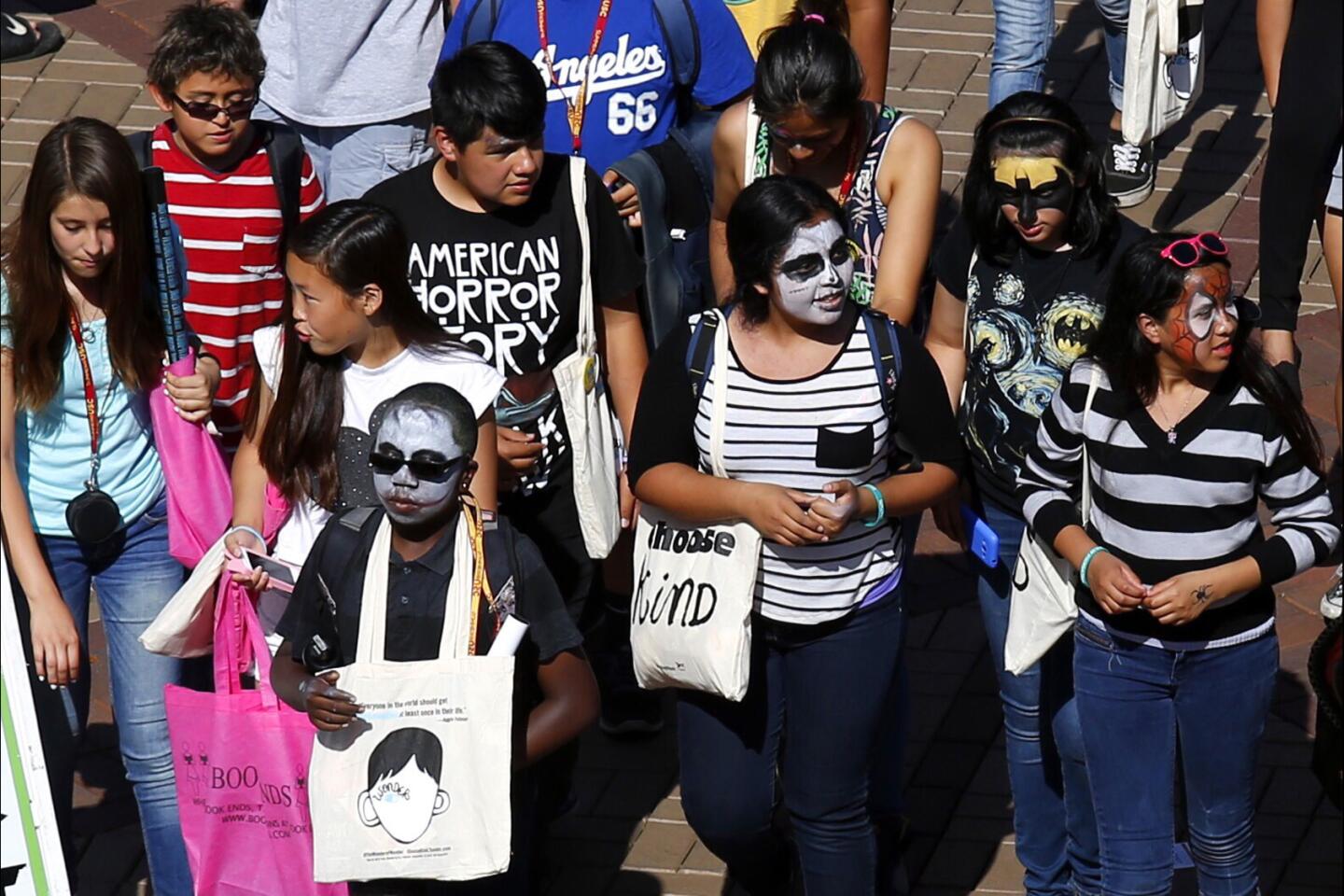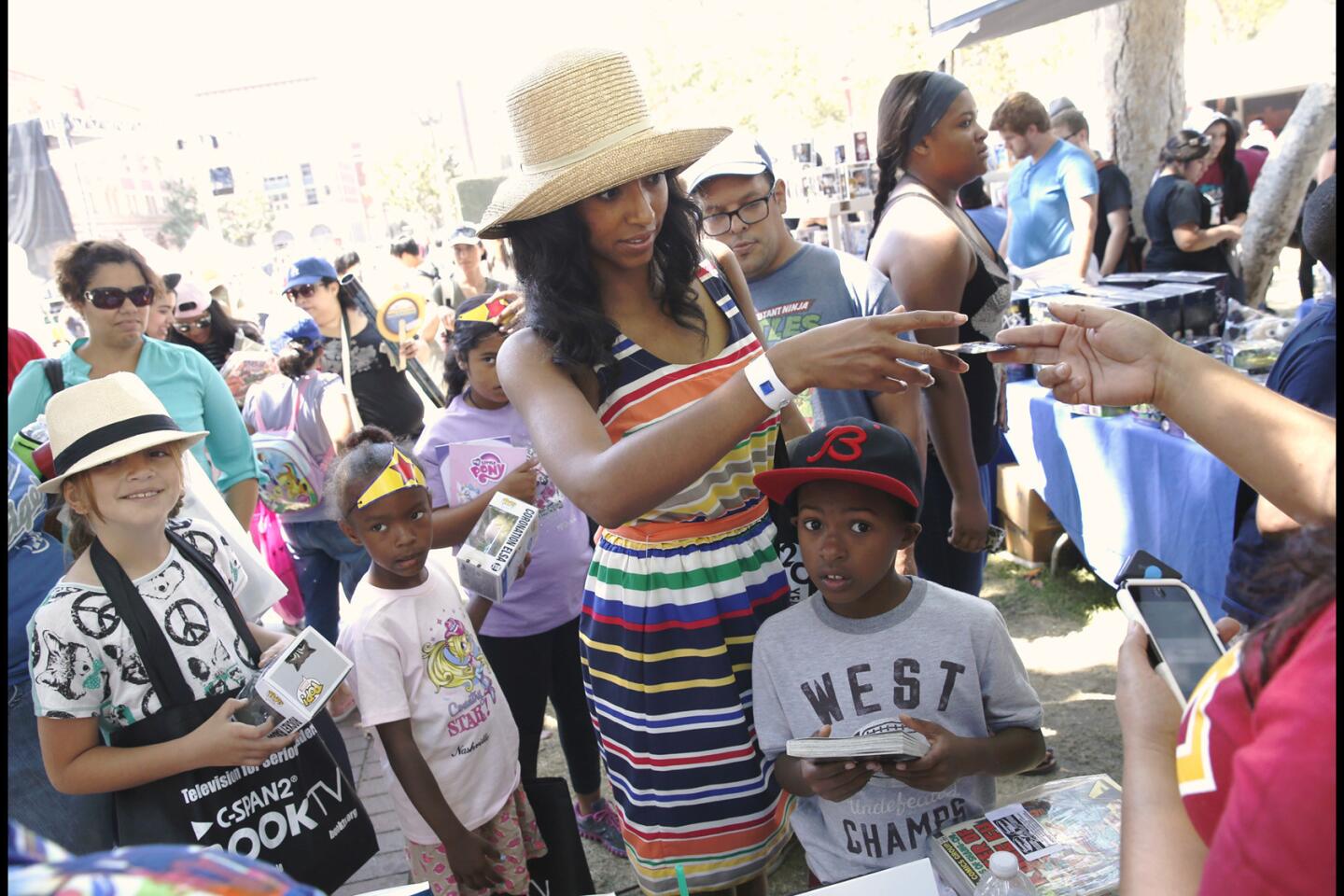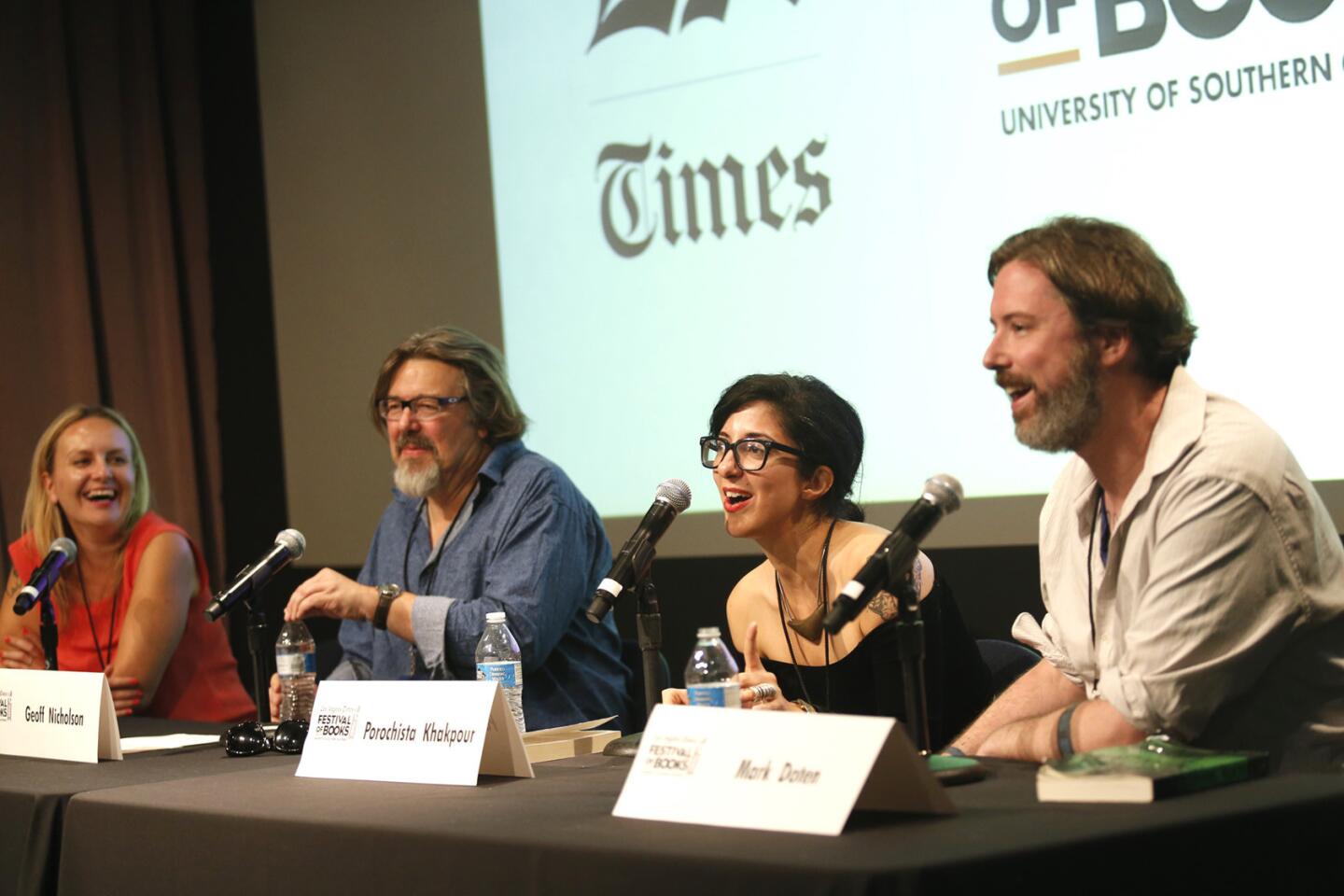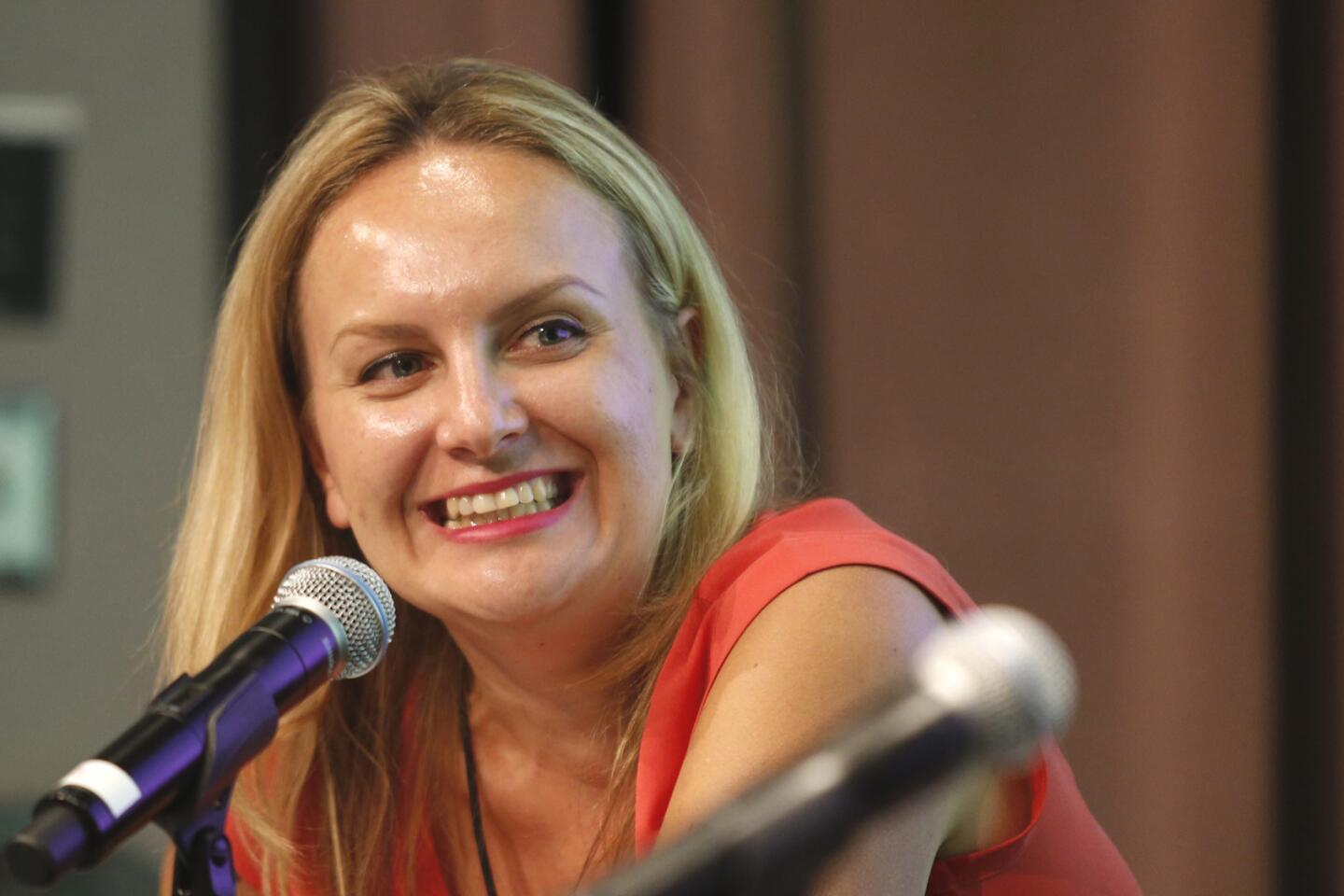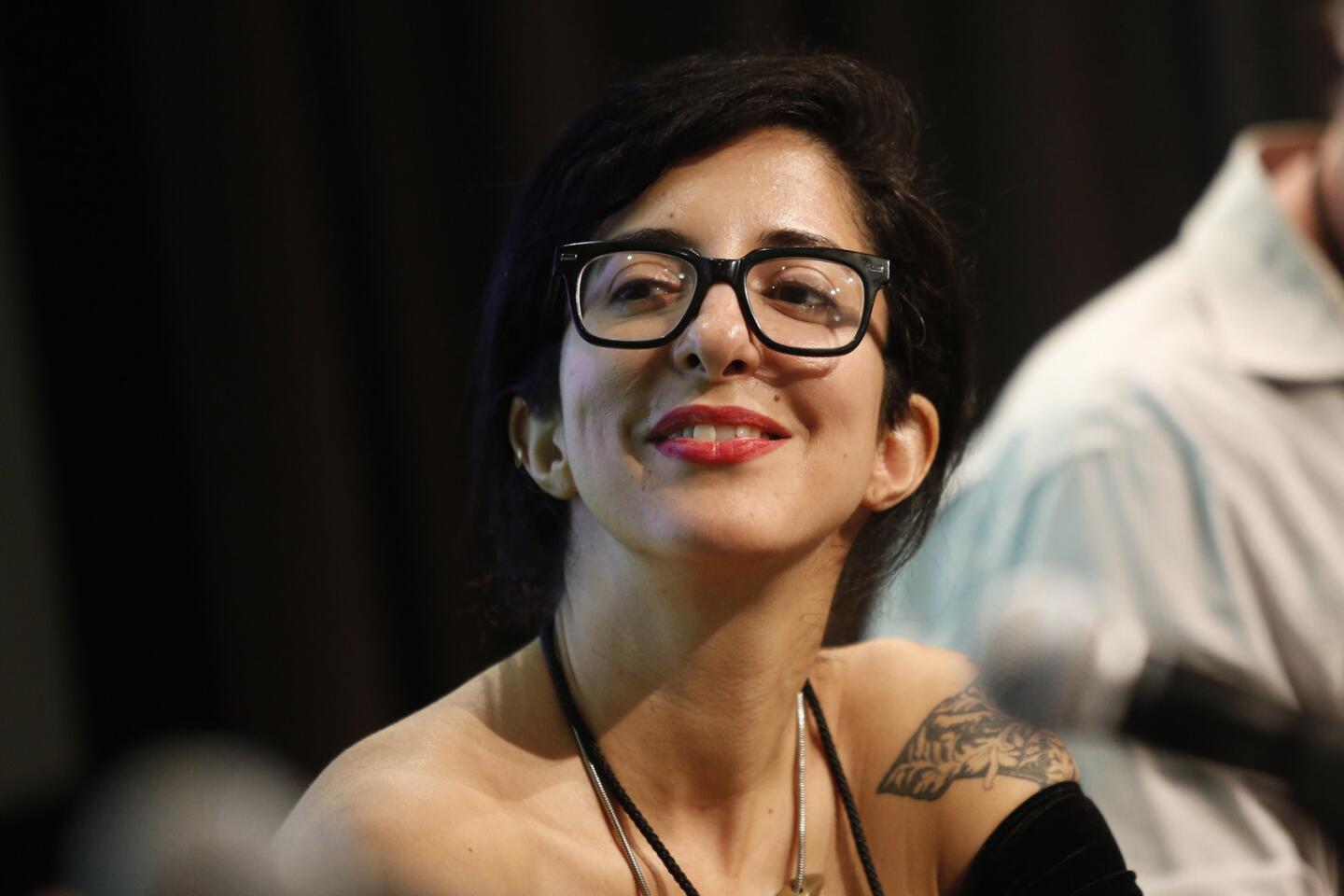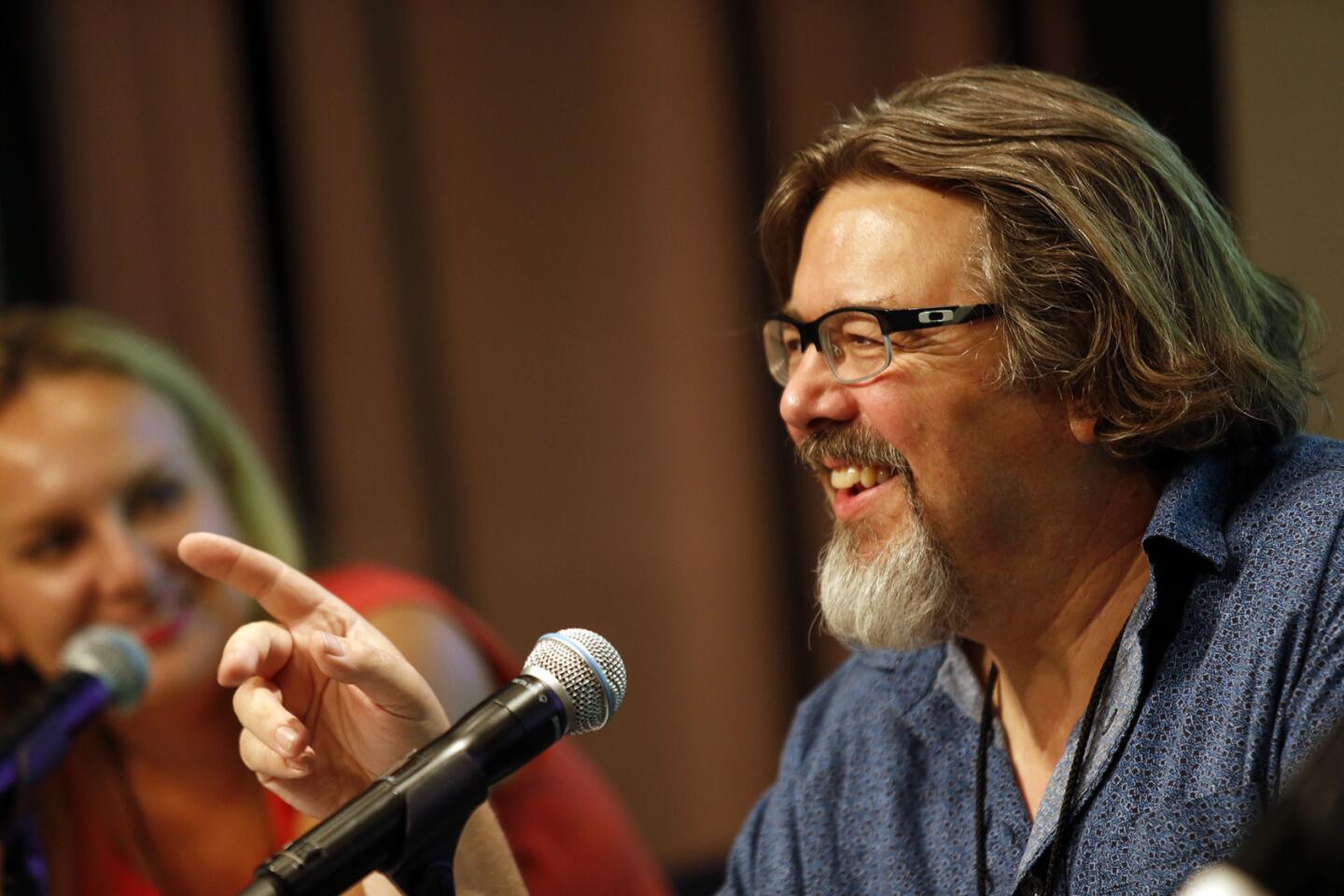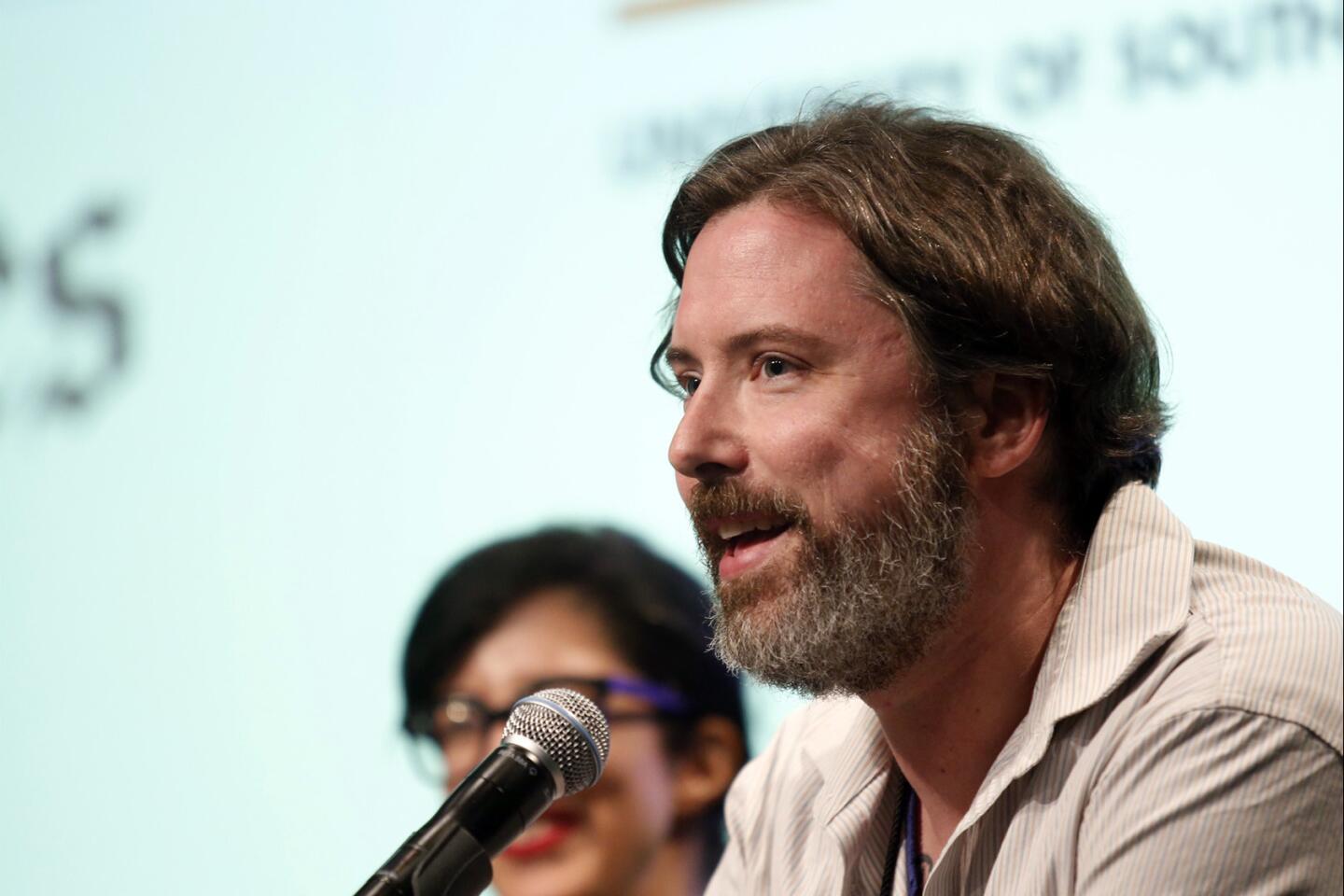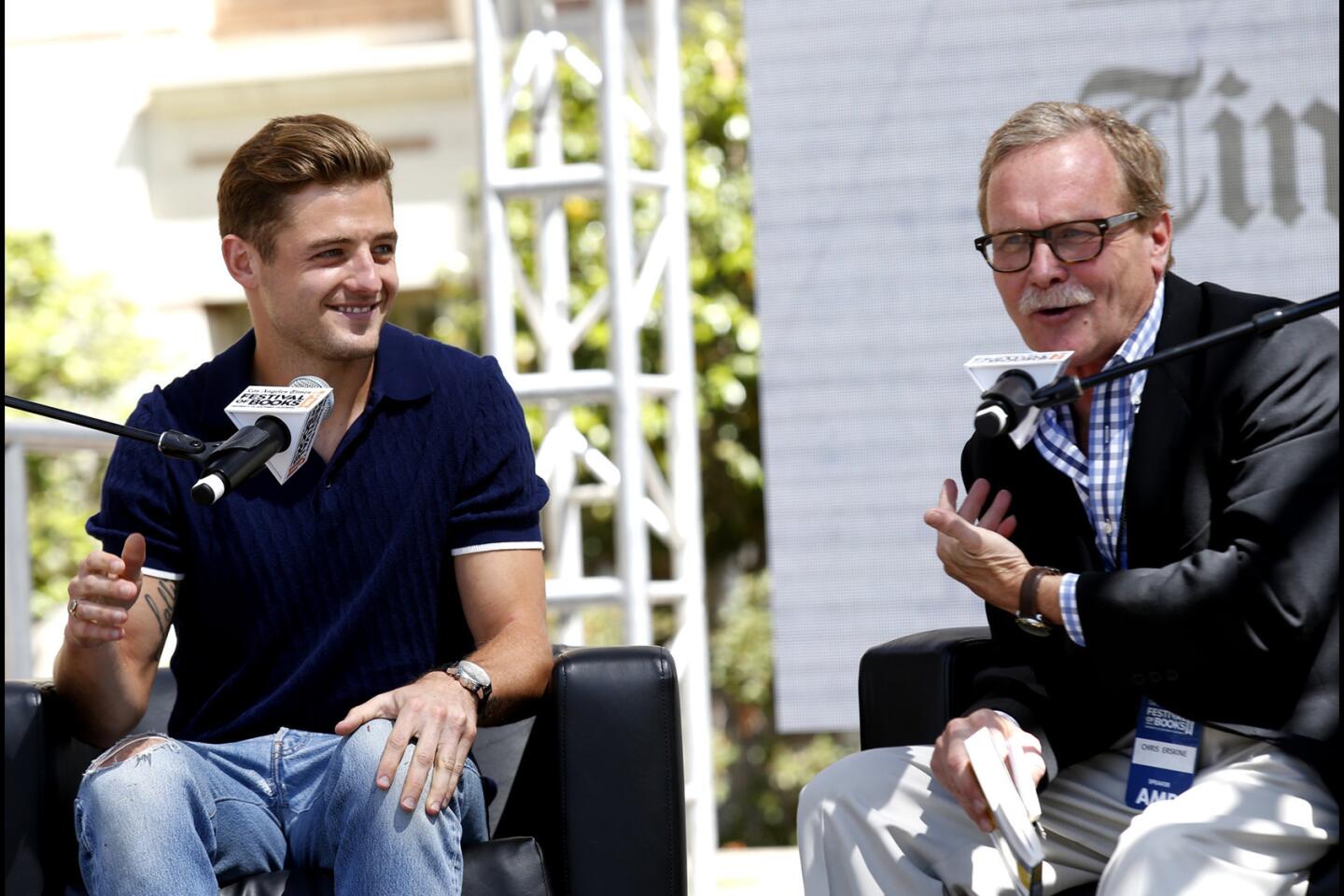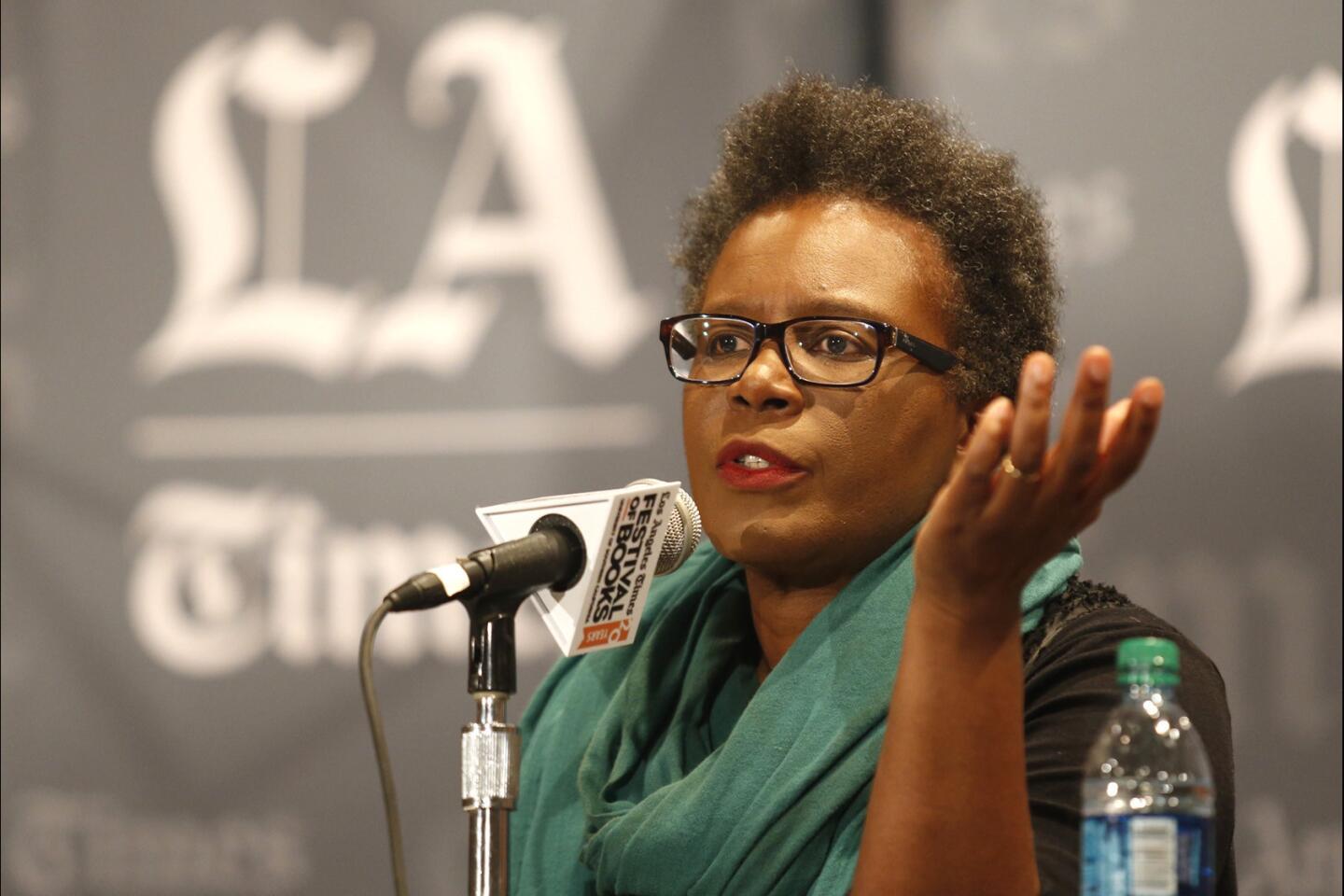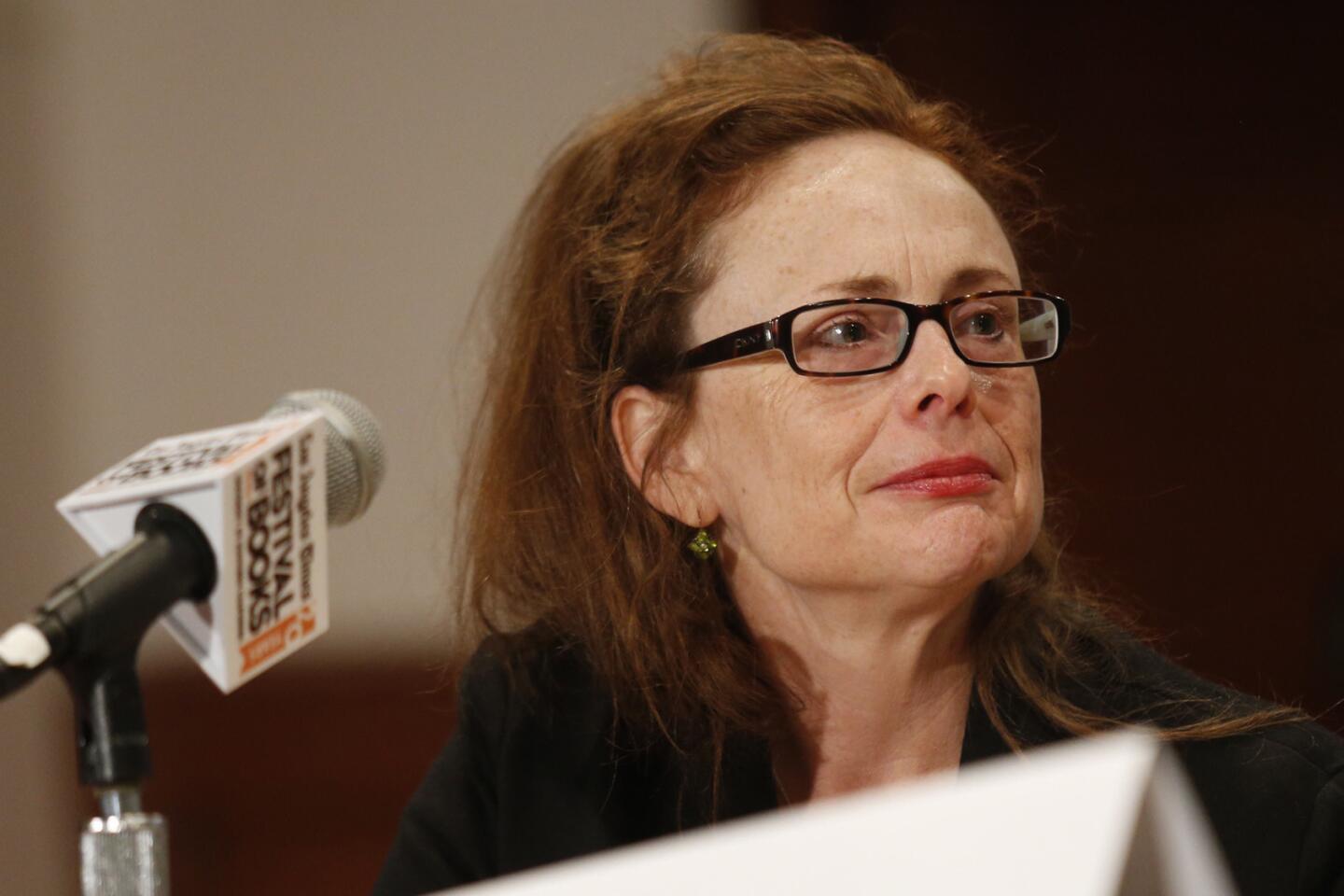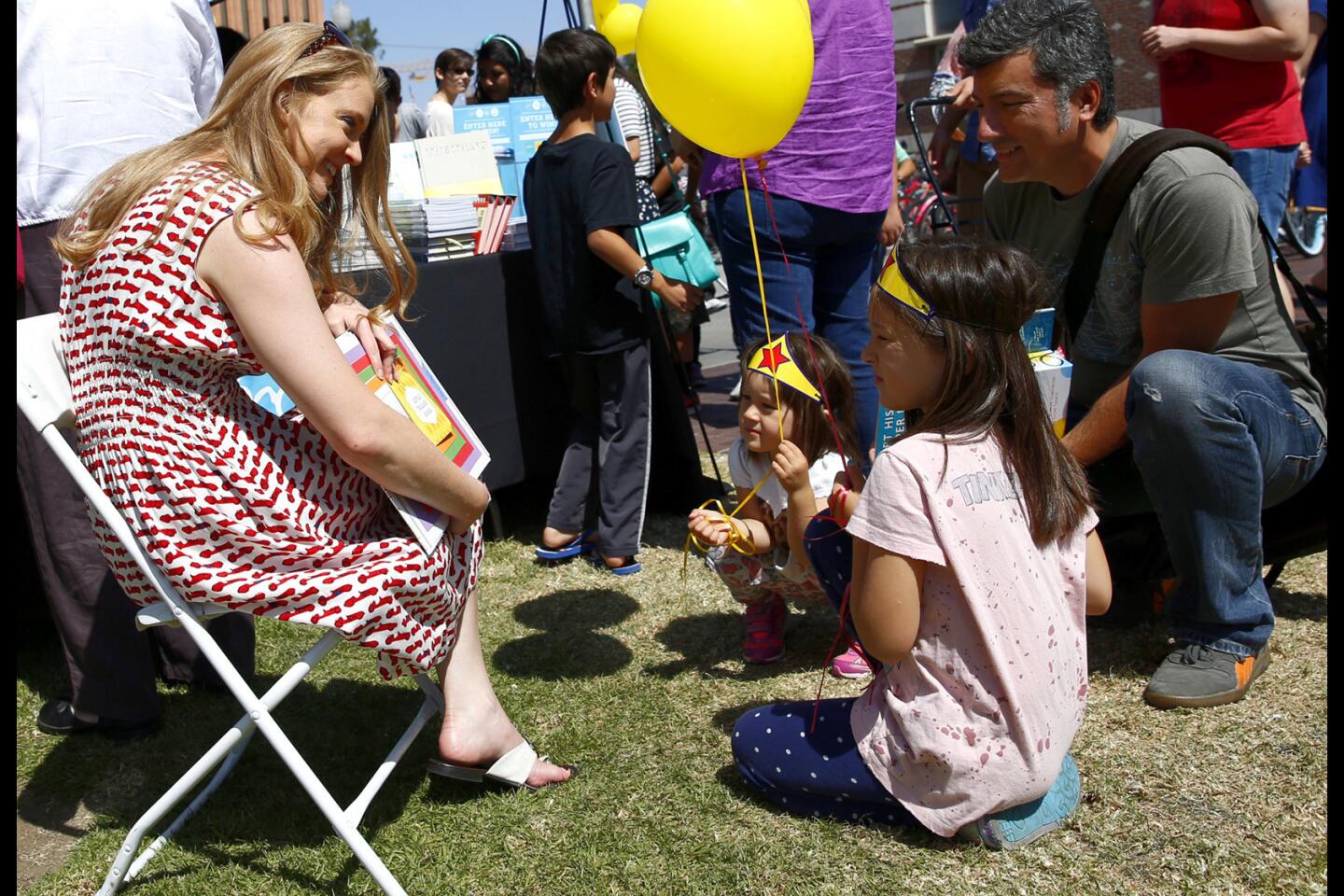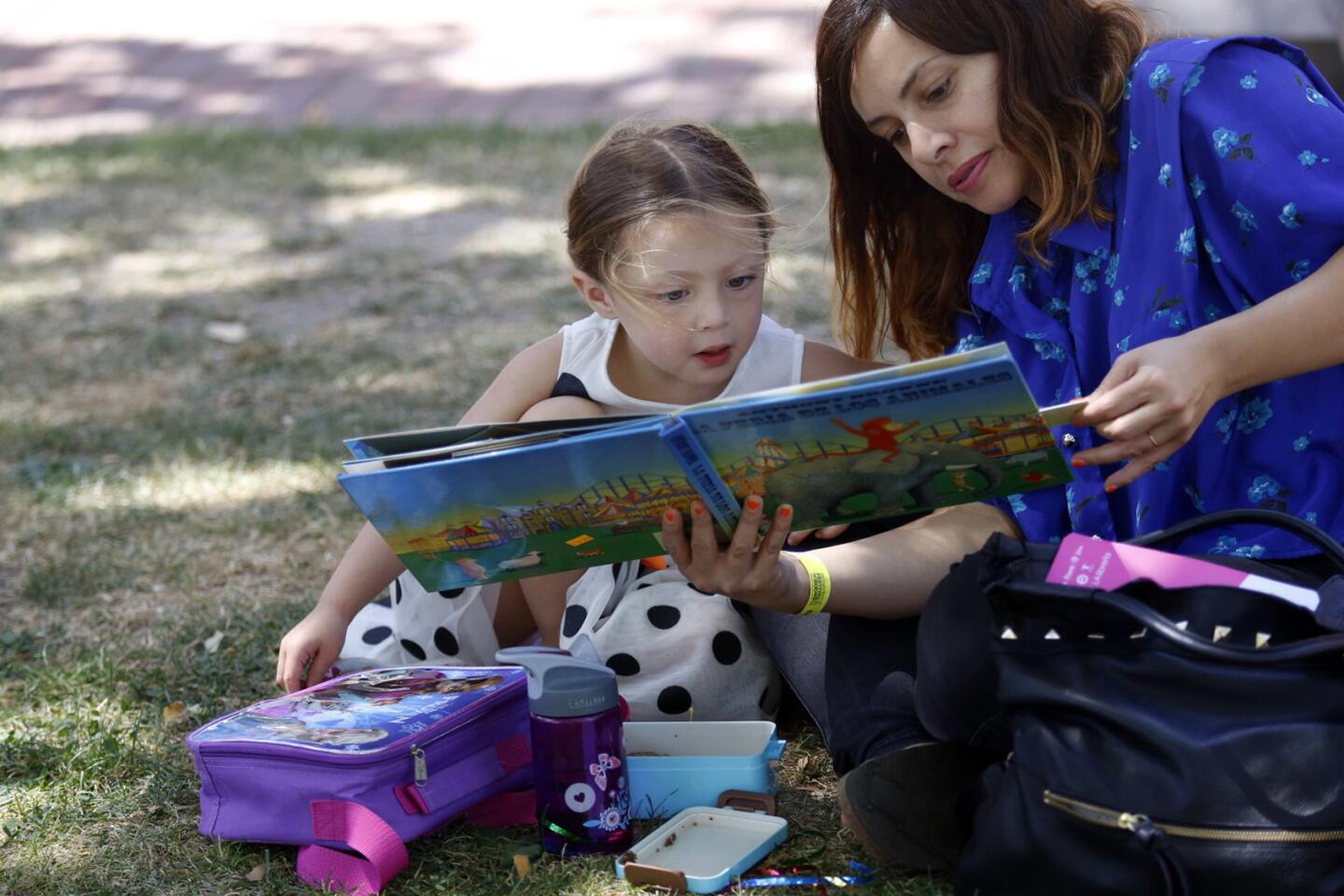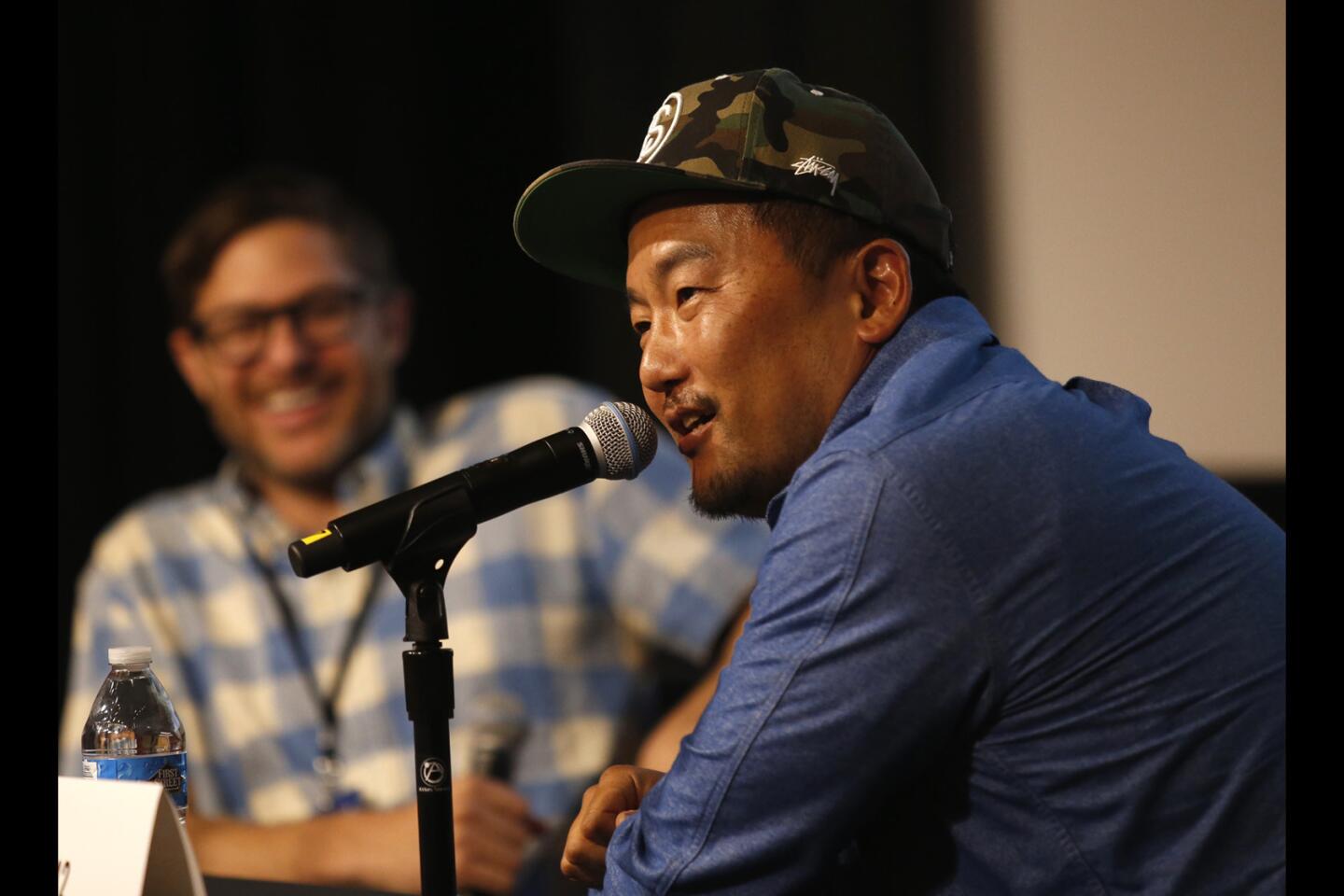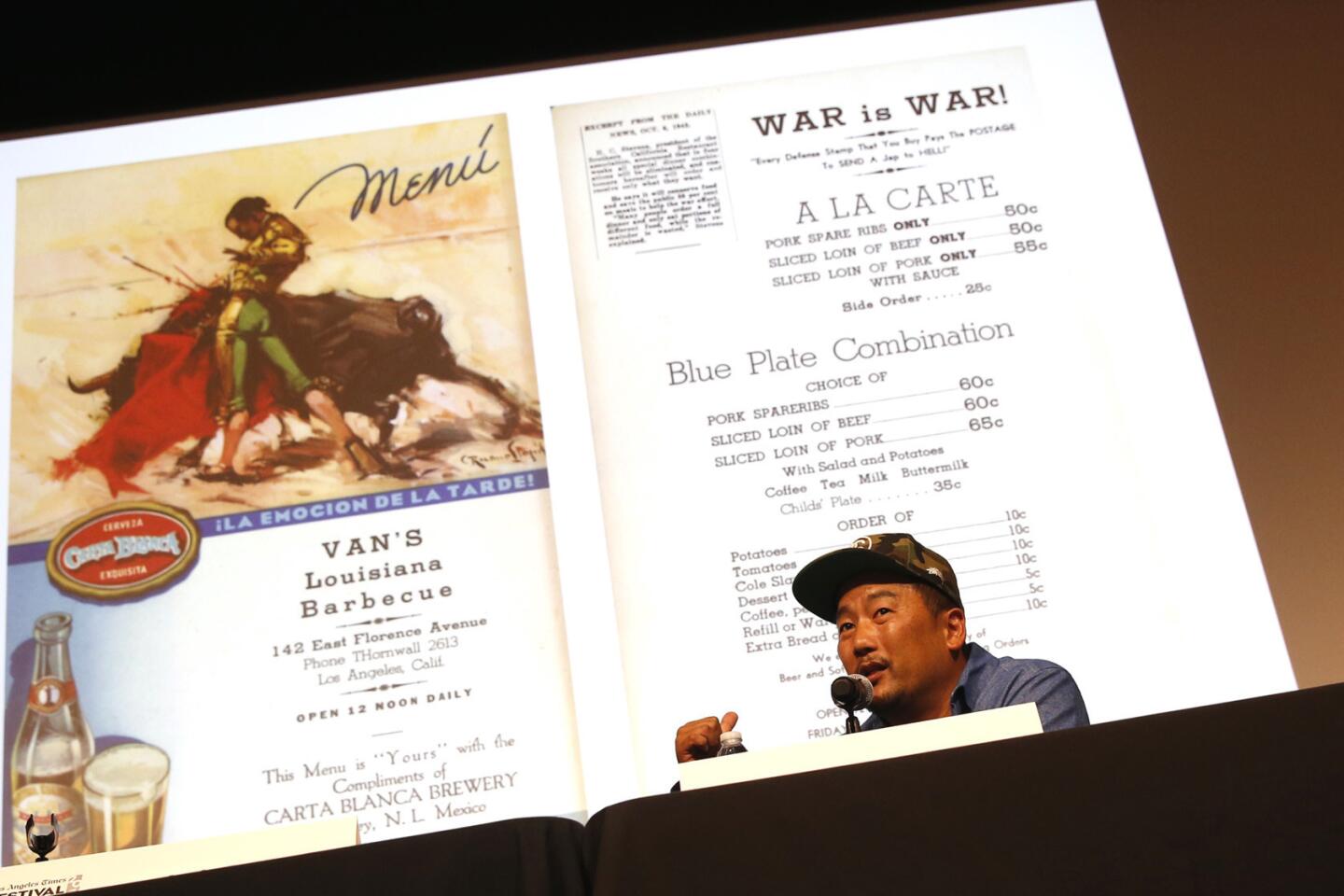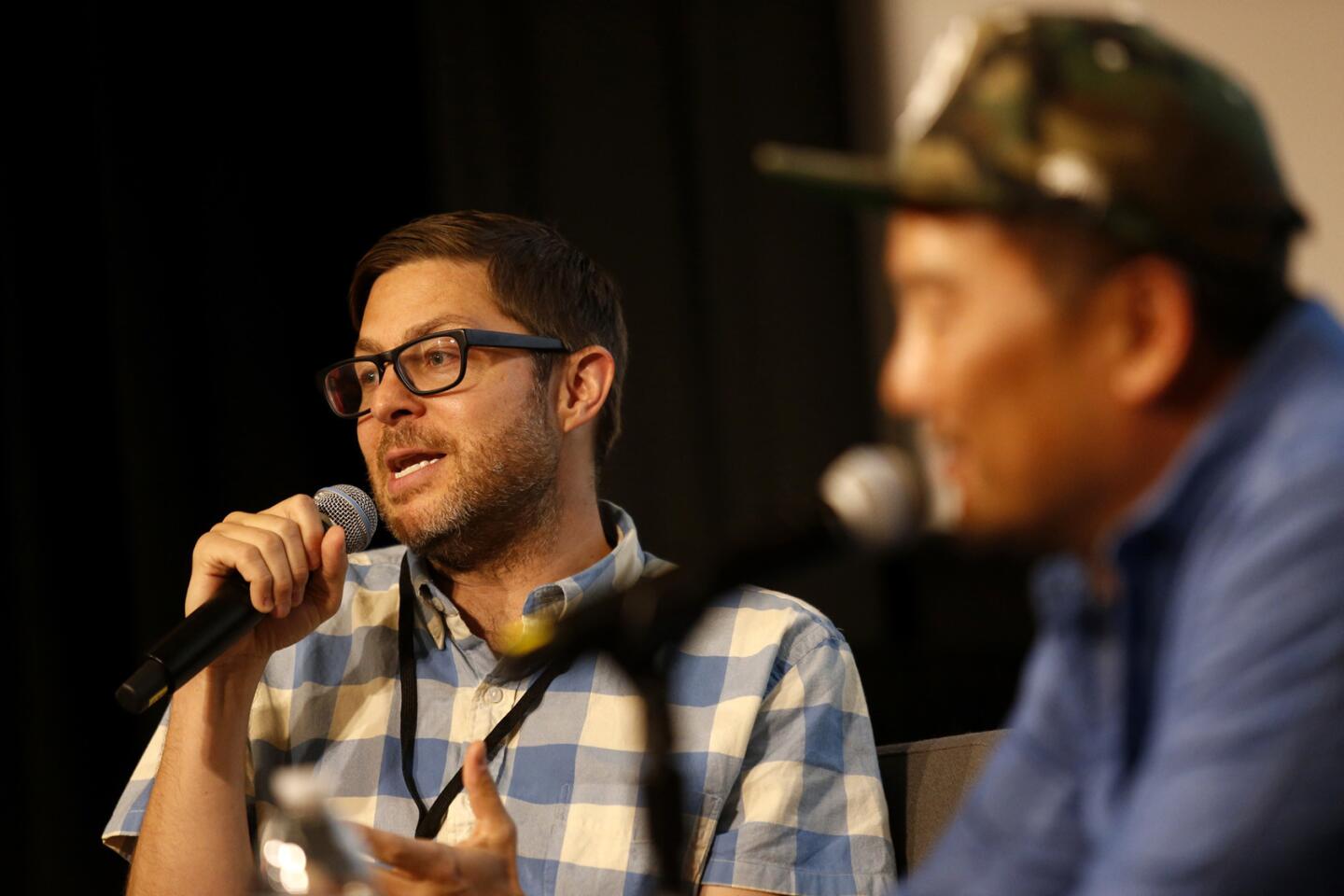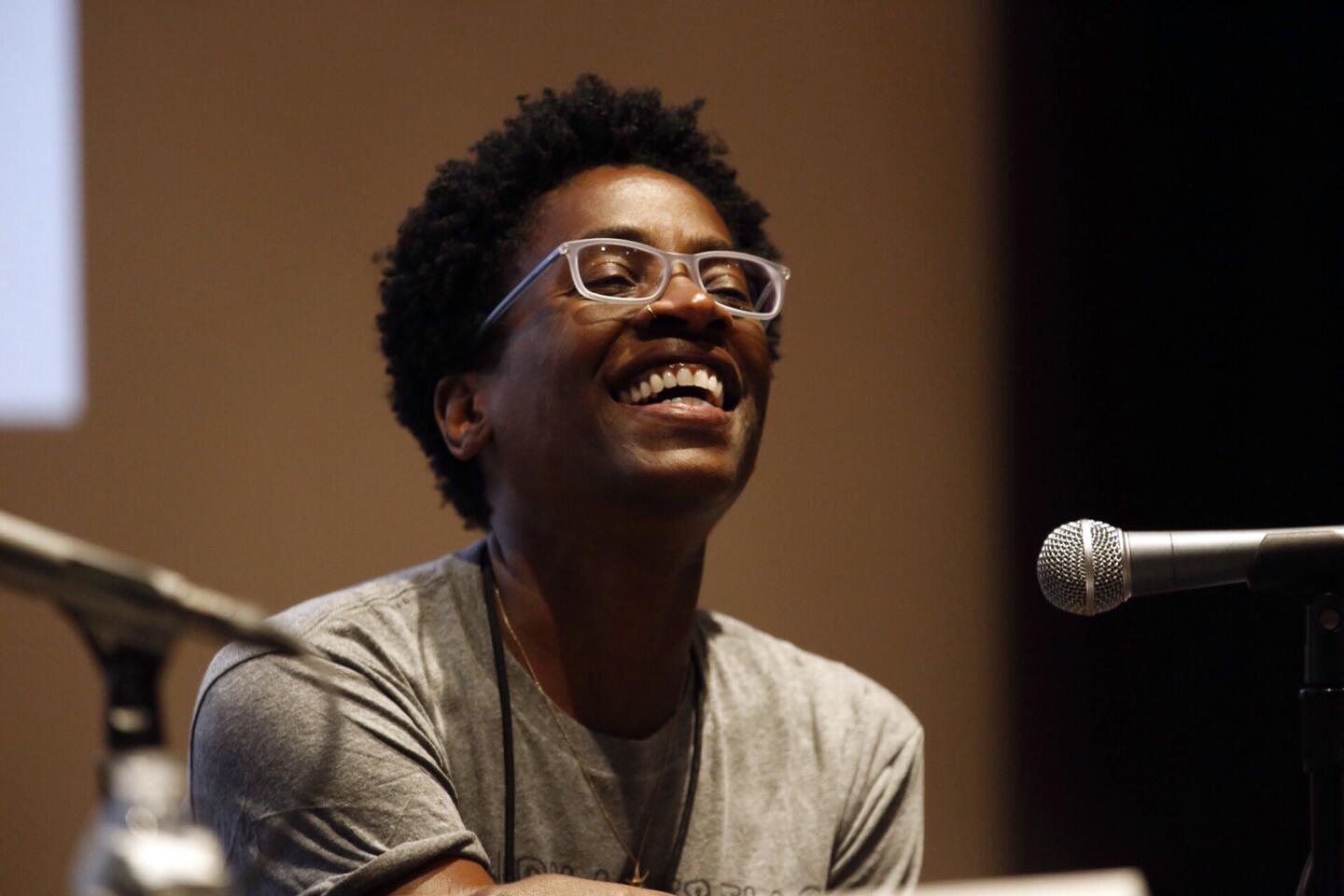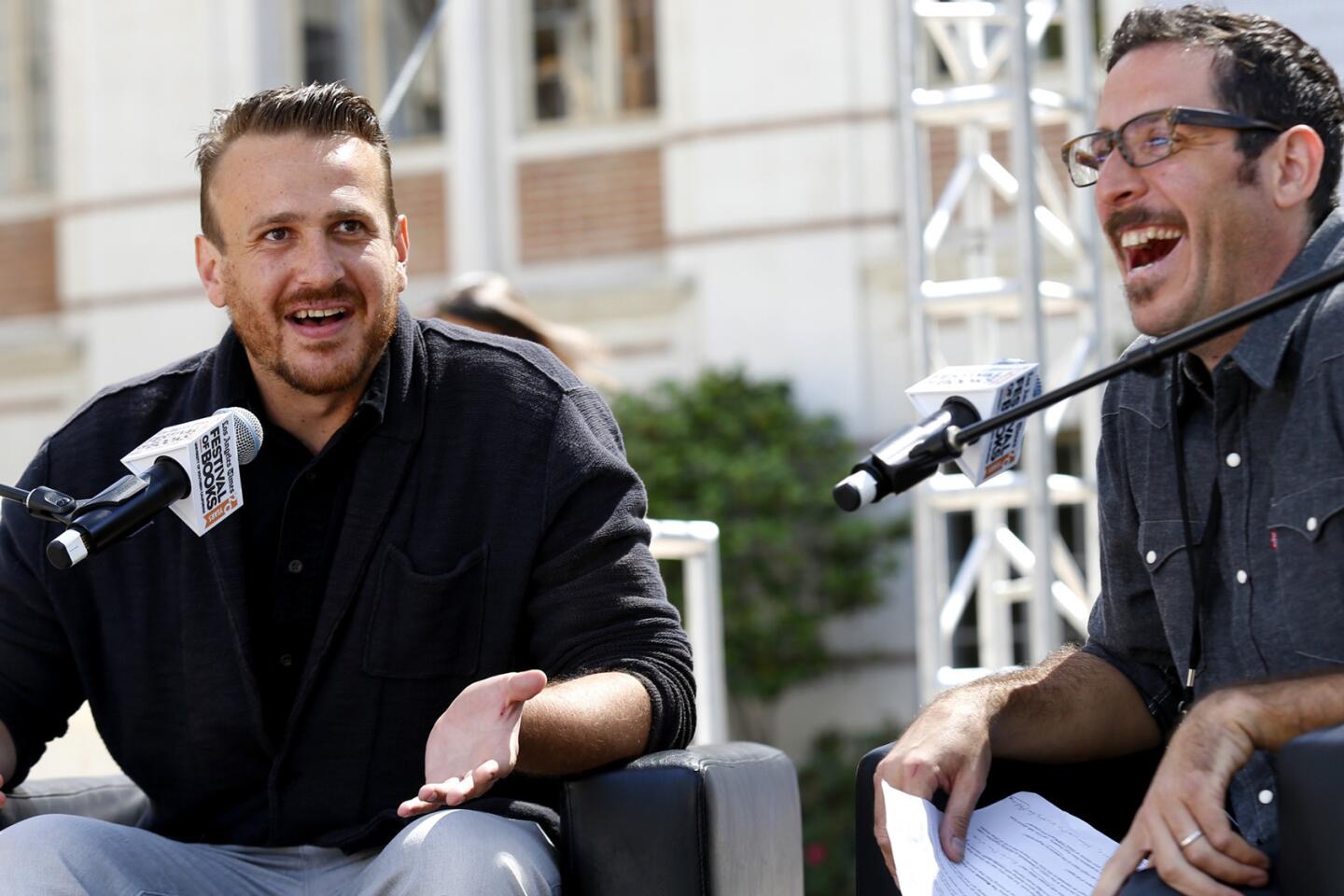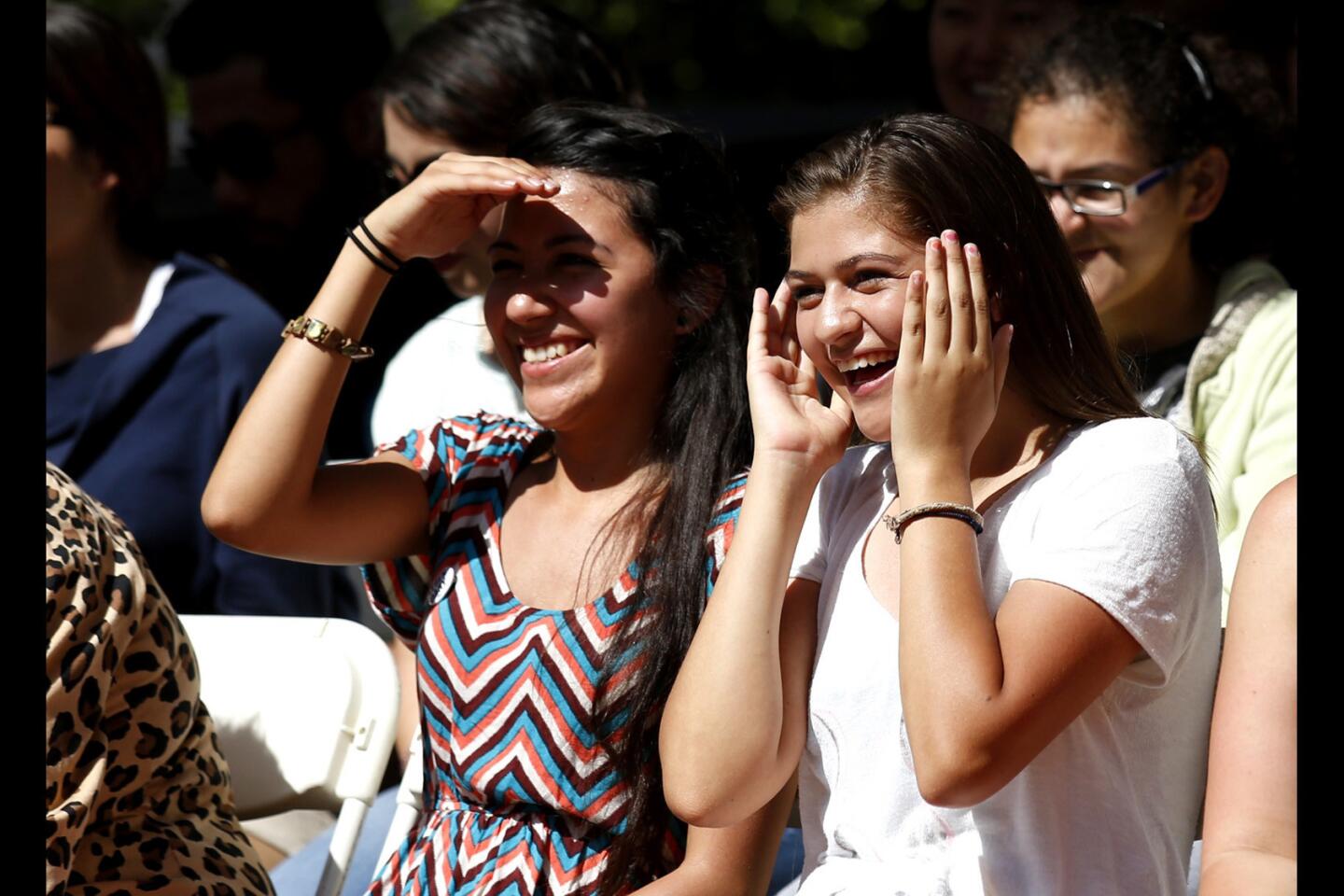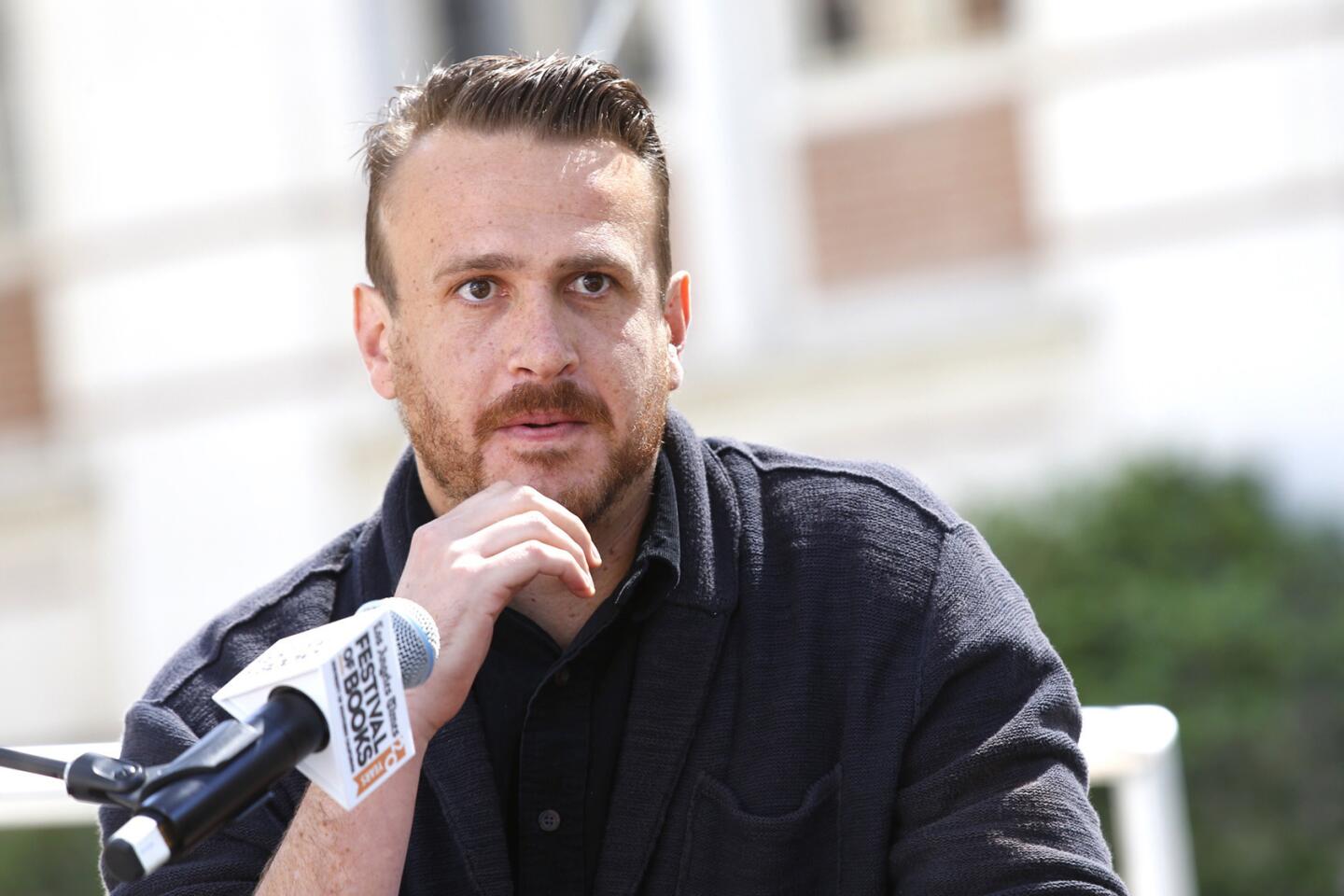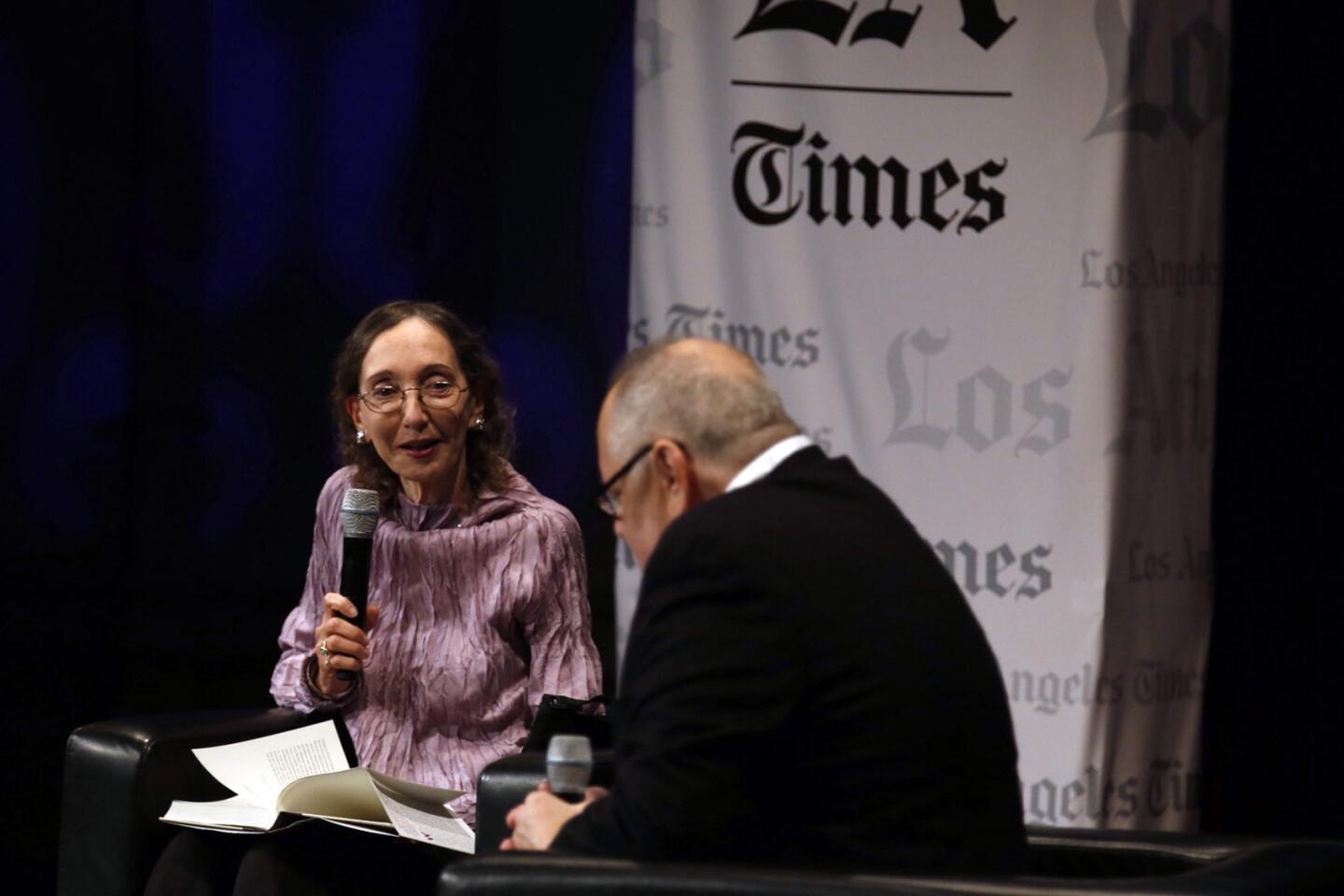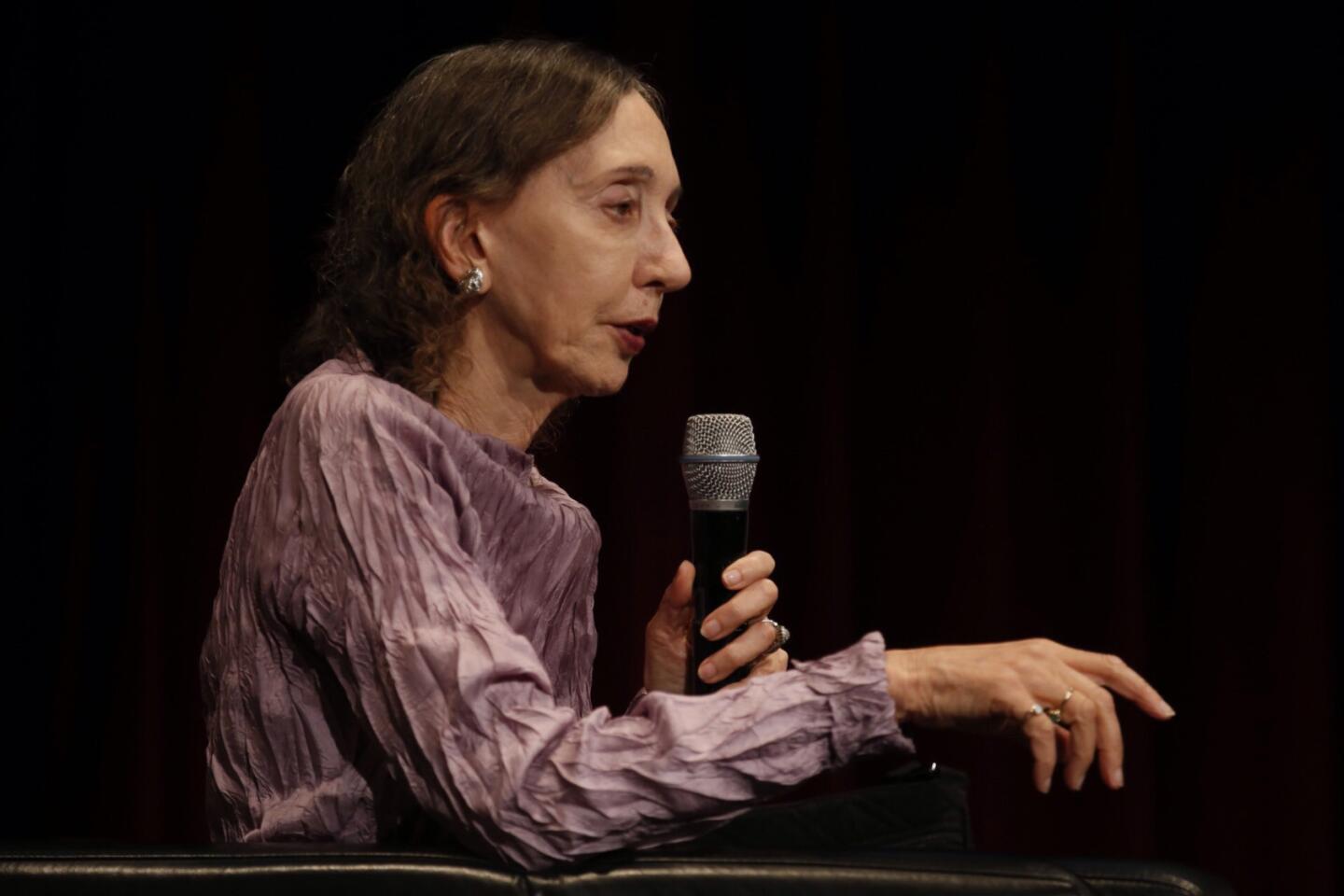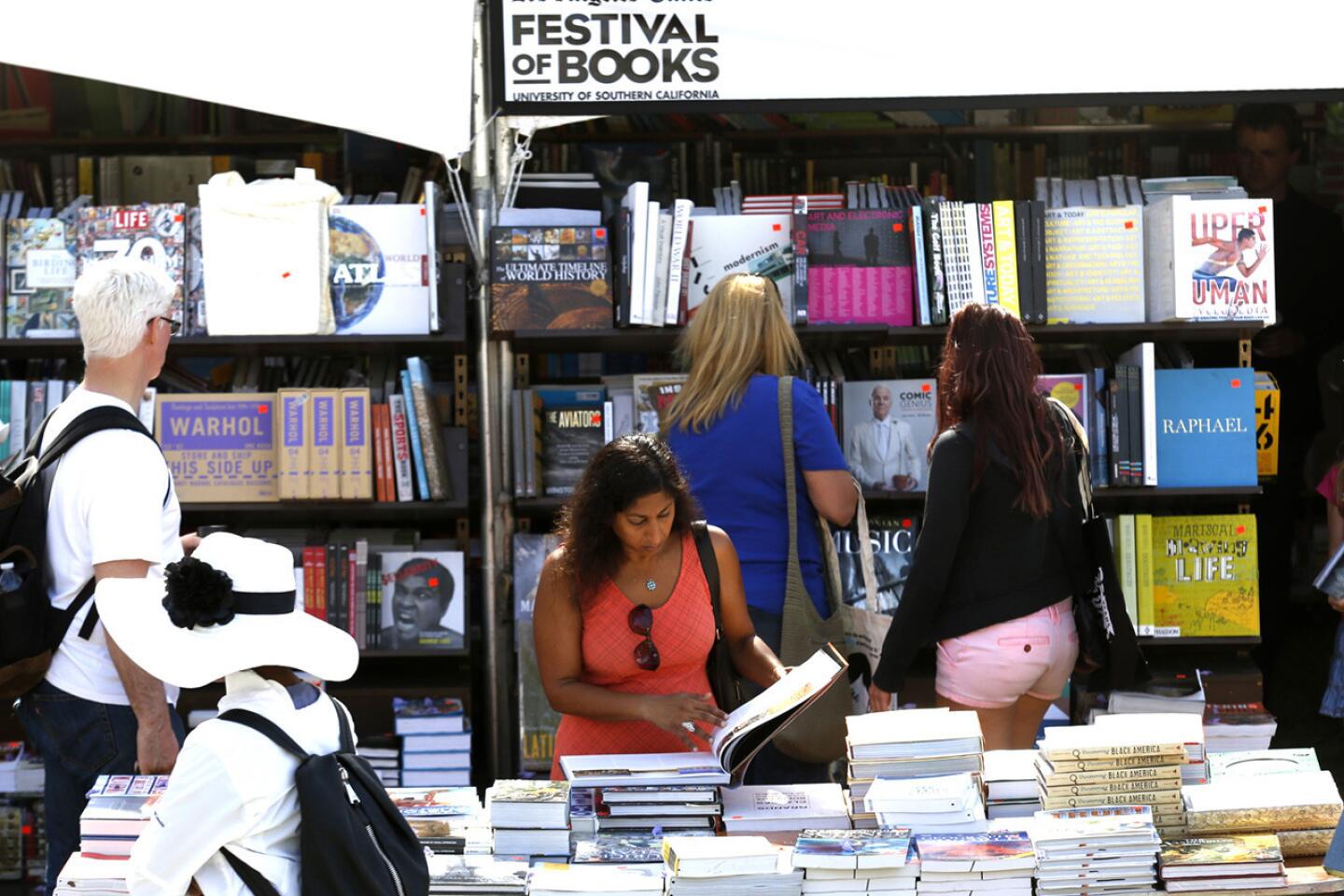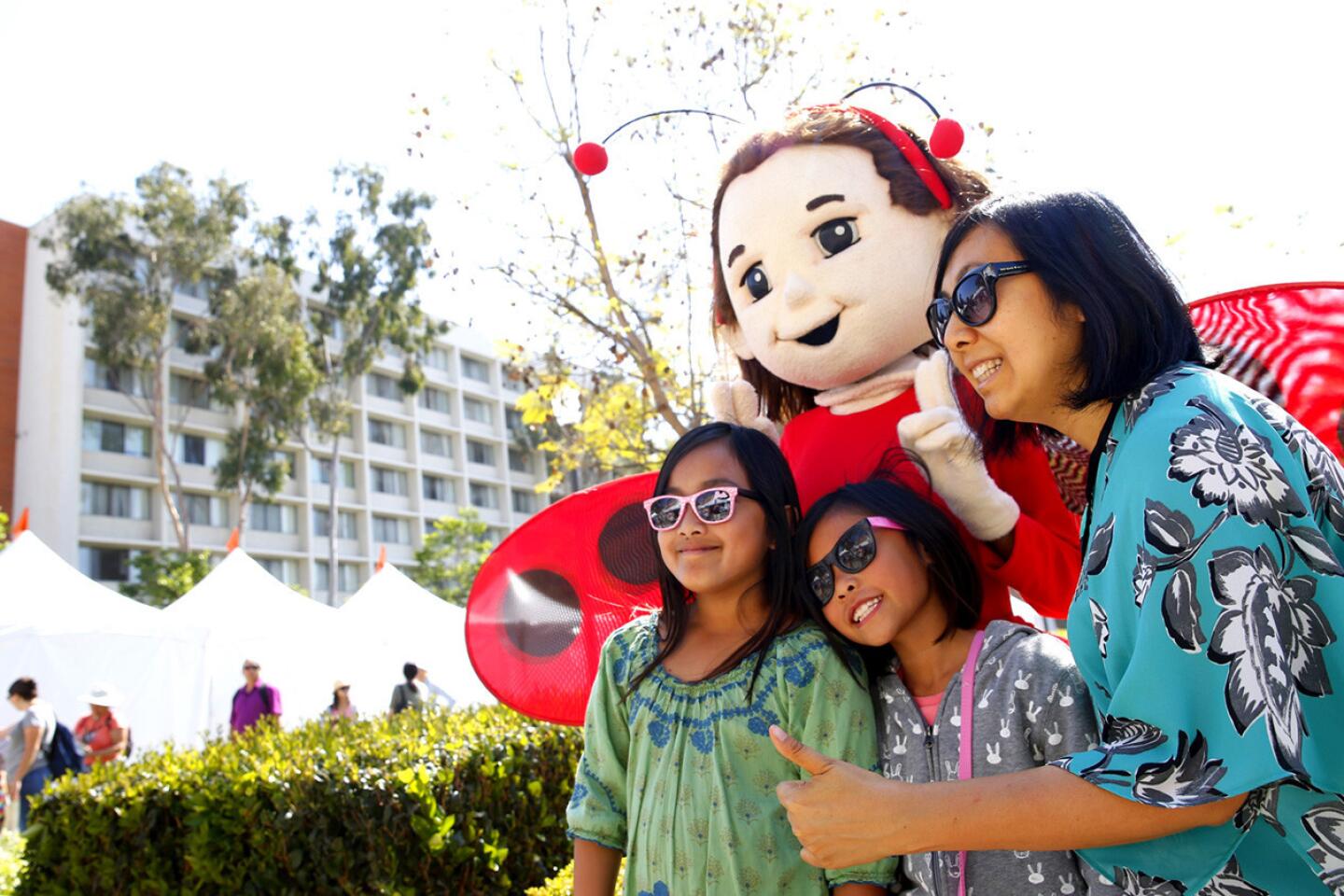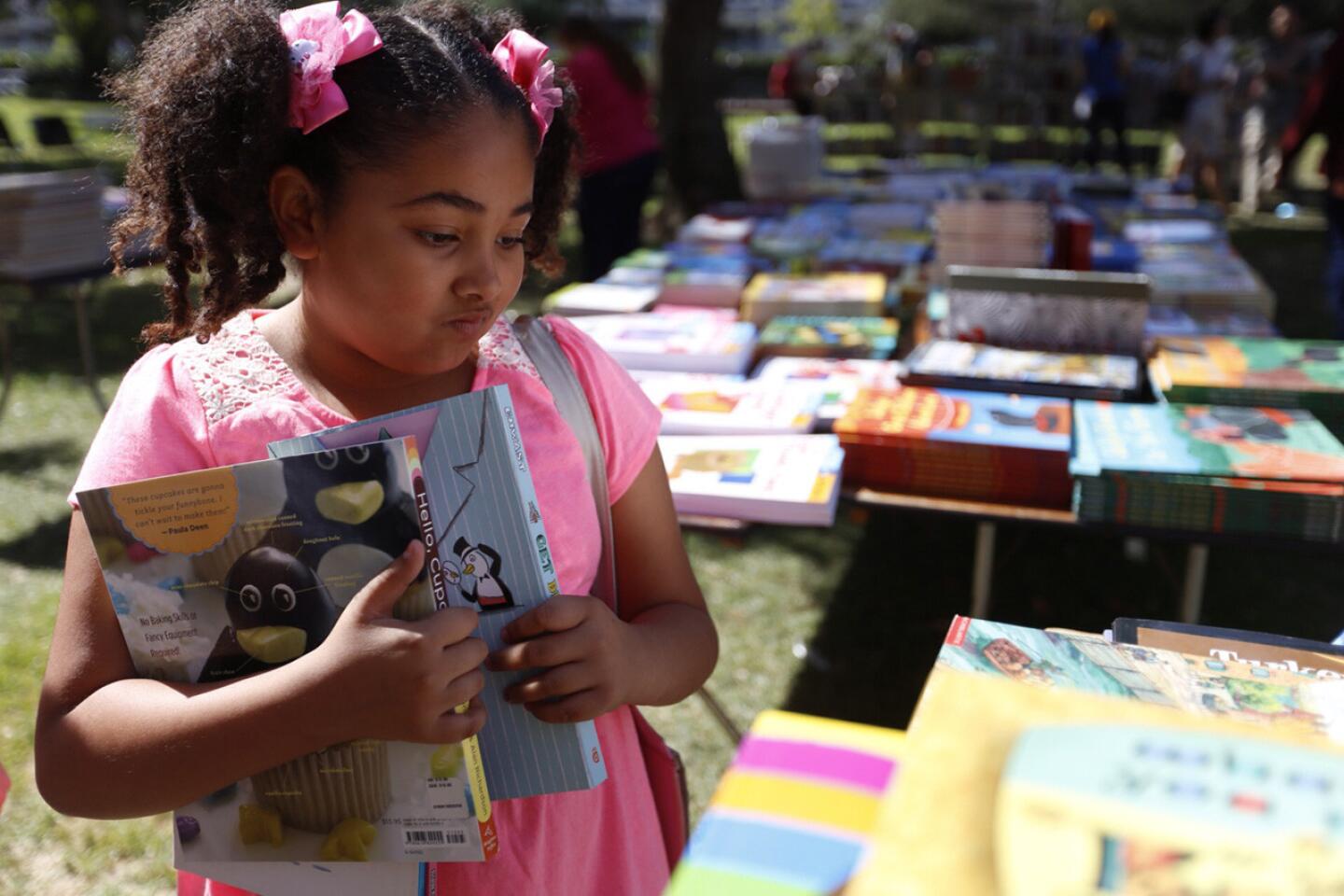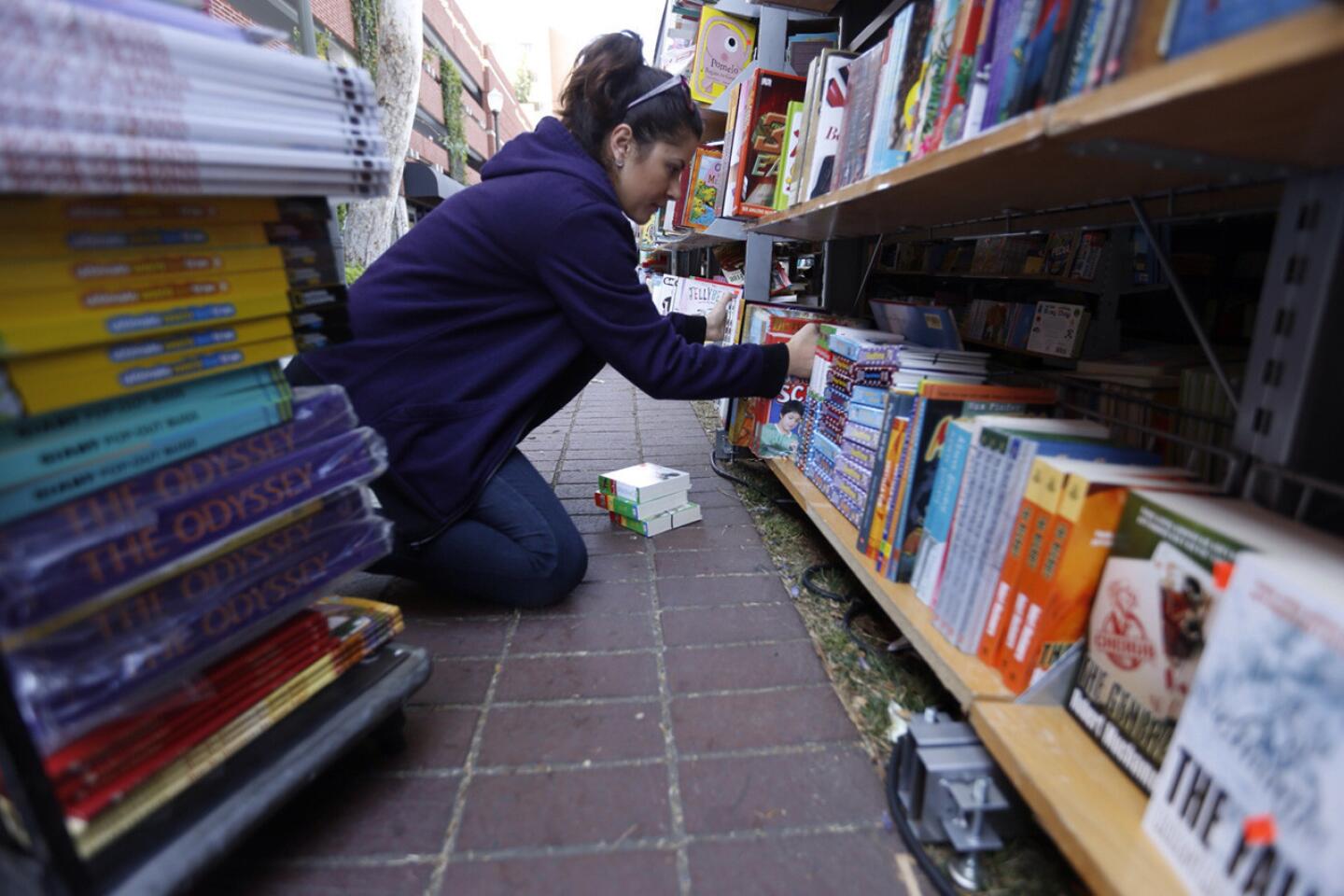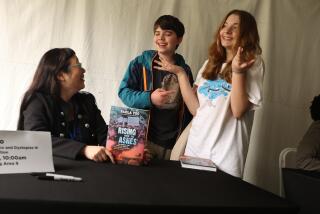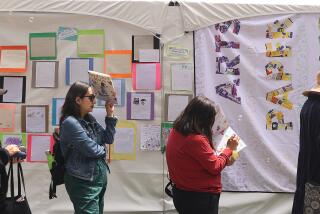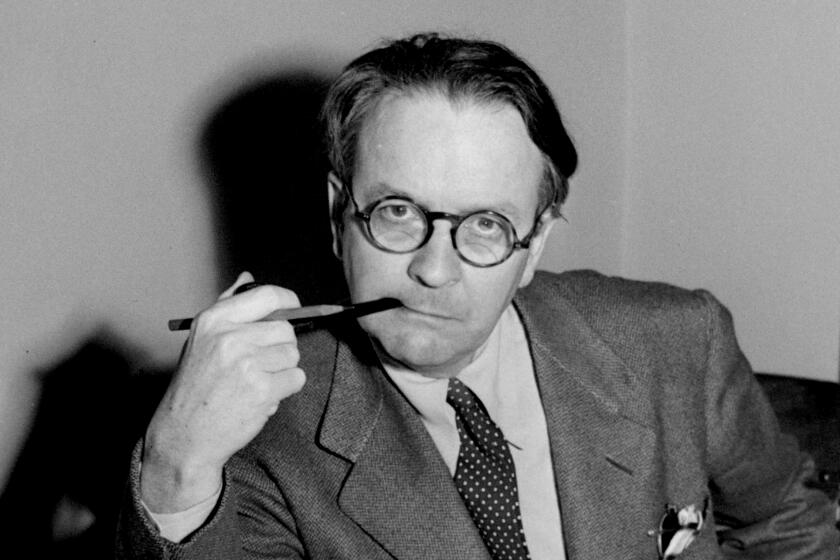Festival of Books: Female writers talk ‘mansplaining,’ un-motherhood
Rebecca Solnit didn’t invent the term “mansplaining.” Nor does she necessarily appreciate the idea she gave birth to it. “I’m its aunt, anyway.”
The question of neologistic genealogy came up during Sunday’s panel, hosted by Times Books and Culture Editor Joy Press, who asked the San Francisco-based essayist and author of 17 books about the enduring power of her piece, “Men Explain Things to Me,” also the title of her new book.
(Solnit said although the essay was probably her most widely read of all time, she was originally paid just $125 for it.)
FULL COVERAGE: FESTIVAL OF BOOKS
Solnit was just one of what Press called the “most brilliant, thought-provoking and ornery women” at this past weekend’s Los Angeles Times Festival of Books.
Also present was Times columnist Meghan Daum, similarly uninterested in the supposed powers or honor of mothering. She is the editor of “Selfish, Shallow and Self-Absorbed: Sixteen Writers on the Decision Not to Have Kids,” as well as author of the new essay collection “The Unspeakable.”
Meanwhile, CalArts professor, poet and nonfiction writer Maggie Nelson brought her own perspective to the idea of (and word) motherhood. Nelson’s new book, “The Argonauts,” is an exploration of having a child with a transgender partner, the artist Harry Dodge.
It embeds biographical material within layers of literary, gender and queer theory. The result is both a celebration of mothering and a complex and challenging investigation of just what and who we are and become when we create children.
On this issue of (pro)creation, Press asked the panel how much of themselves they put into their books, and if there were there lines they wouldn’t cross?
Nelson recalled this Herve Guibert line: “In writing I am always both the scientist and the rat he slits open to do his research.”
“It’s never about hurting people’s feelings,” Nelson said. “The negotiation is between the drawing room of your mind and the culture you’re a part of.”
The women all had different experiences when their work began to resonate with a larger public. “If you have an opinion about gender or Obama, that’s where your mostly likely to be attacked, vilified, crucified,” Solnit said. “It’s easier to write about orgasms than about Obama.” Everyone laughed.
But the stakes can be high, Solnit cautioned.
“Twitter has done nothing to stop being the world’s greatest means to deliver rape and death threats to women,” Solnit said, explaining why she’s never tried the social platform, except to confirm that two to three people each day link to her mansplaining essay.
What none of the women writers backed away from was a belief in the power of what they could accomplish on the page — whether it meant making strangers angry or colleagues ruffled.
“No one will love you until someone hates you,” Daum said.
MORE FROM THE FESTIVAL OF BOOKS:
Roy Choi and Josh Kun on food, politics and L.A. history
How soccer’s Robbie Rogers beat fear to pen ‘Coming Out’
Malcolm Gladwell discusses fame, writing and three strikes
Follow the books section on Twitter @latimesbooks and Facebook
More to Read
Sign up for our Book Club newsletter
Get the latest news, events and more from the Los Angeles Times Book Club, and help us get L.A. reading and talking.
You may occasionally receive promotional content from the Los Angeles Times.

